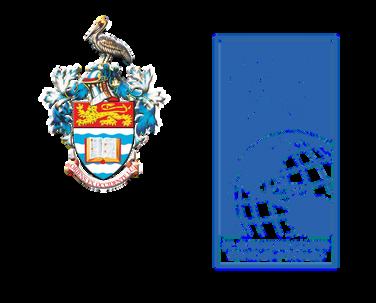

IIRToday
The University of the West Indies, St Augustine
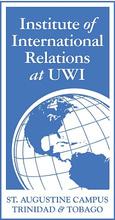
Diplomatic Academy of the Caribbean Marks 10-Year Milestone
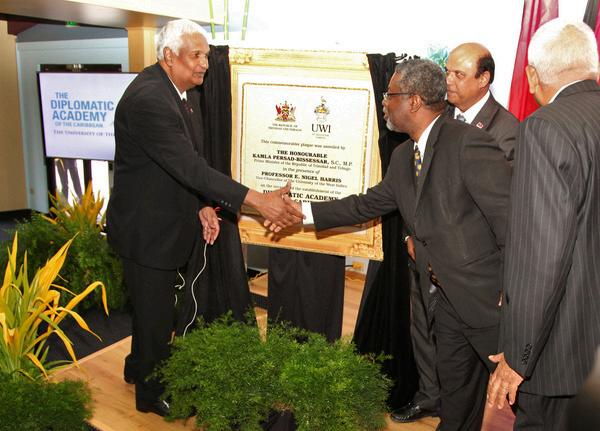
...
With Vice-Chancellor’s Forum on Haiti
On May 6th, 2024, The UWI Institute of International Relations’ (IIR) Diplomatic Academy of the Caribbean (DAOC) marked a decade of delivering innovative, modern diplomatic studiesrelated learning solutions to a range of individuals and institutions As the first in a series of activities planned for the month to commemorate the 10th
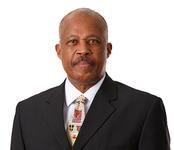

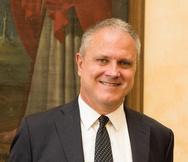
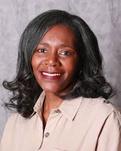
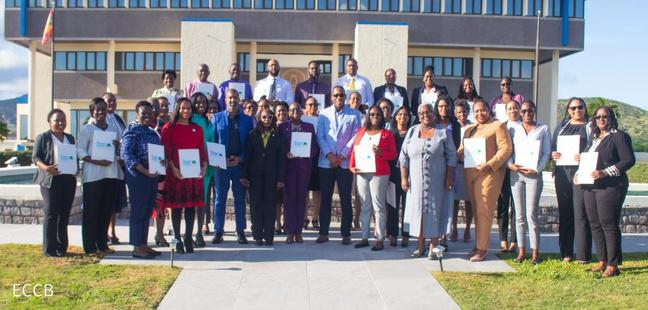
anniversary of the DAOC, a thought-provoking virtual panel discussion was held on the complex crisis gripping Haiti Hosted as part of The UWI's Vice-Chancellor's Forum series, the event’s distinguished panel of experts delved into the nuanced dimensions of Haiti's challenges and the latest chapter in Haiti's political transition

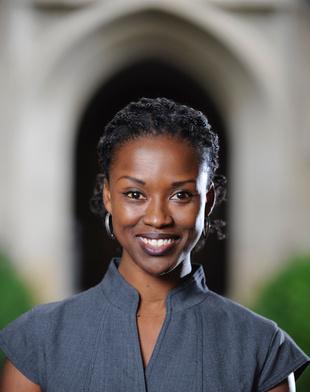



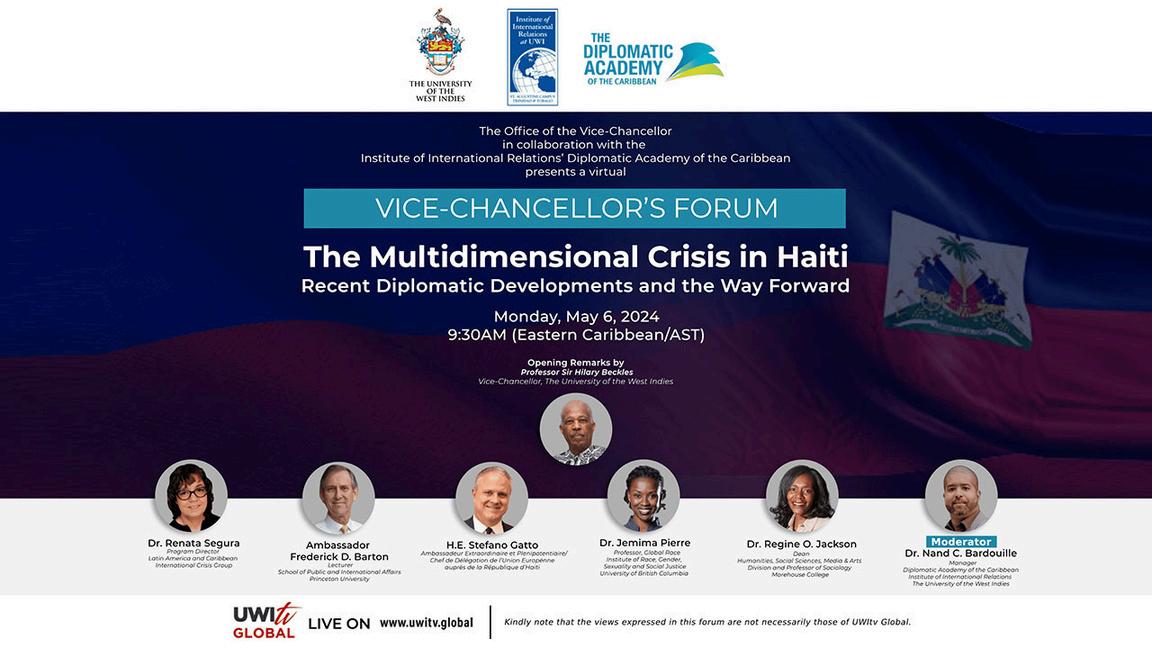
L-R: (1) At the opening ceremony of the DAOC, Professor Winston Dookeran, then-Minister of Foreign Affairs shakes hands with Professor Andy Knight, then-Director of the IIR, as Mr Fazal Karim, then-Minister of Science and Tertiary Education, onlooks at the unveiling of the DAOC plaque (2) Dr Nand Bardouille, Manager of the DAOC and Ms Gail Guy, Facilitator, with the cohort of the 2023 module: Protocol and Diplomacy: A Guide for the Modern Professional Source: ECCB
Dr. Renata Segura
Professor Sir Hilary Beckles
Chancellor University of the West Indies
The Multidimensional Crisis in Haiti: Examined by Experts
Against the backdrop of Haiti's tumultuous relationship with the West, stemming from its history of colonialism, Vice-Chancellor Sir Hilary Beckles highlighted the enduring impact of this legacy on Haiti's current predicament
The panel emphasised the urgent need for concerted action to address the country's deeprooted challenges Dr Renata Segura pointed to a small window of opportunity in Haiti with the formation of a transitional government and the arrival of a multinational support mission led by Kenya, which, despite initial difficulties, represents the best hope for tackling the pervasive gang-related violence and restoring some state functionality
Ambassador Frederick Barton advocated for immediate action to save lives and restore public safety, calling for a collaborative effort involving Haitian authorities and international partners Ambassador Stefano Gatto reaffirmed the European Union's commitment to supporting Haiti's political stability and addressing its humanitarian crisis.
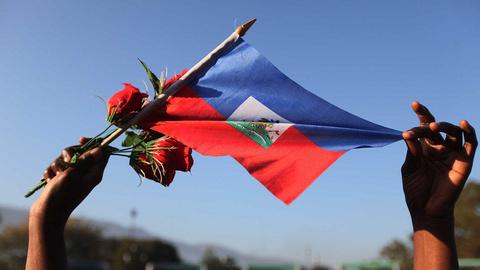
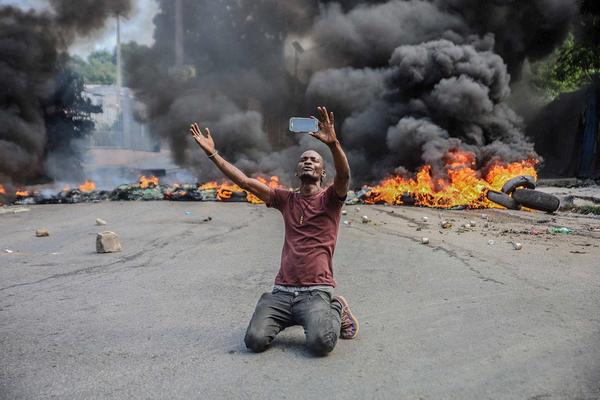



Professor Jemima Pierre underscored the historical context of Haiti's plight, highlighting Western imperialism's role in perpetuating instability. She urged the Caribbean community to confront the reality of foreign intervention in Haiti's affairs Dr Jacqueline Laguardia-Martinez, emphasised the crucial role of Haitian civil society in rebuilding institutions and combating corruption.
Reflecting on the discussion, Professor Regine Jackson emphasised the need for multidimensional solutions, including debt relief and addressing underlying economic issues
As Haiti navigates a critical juncture in its history, the forum concluded with a poignant question: Can stakeholders rise above political divisions to pave the way for genuine development and progress in the world's first Black Republic? The challenges ahead are immense, but the start of a collective resolve to confront Haiti's crisis offers hope for a brighter future.
A man films himself in front of tires on fire during a general strike launched by several professional associations and companies to denounce insecurity in Port-au-Prince on Oct 18, 2021 (Richard Pierrin/AFP via Getty Images/TNS)
A Haitian flag is stretched in the air during Haitian Flag Day celebrations in Port-au-Prince on May 18, 2018 Kim Anderson via Getty Images
Haiti: Perched to Pivot?
Chinaka Nelson, IIR Alumna, MSc Global Studies
The world looks on as the humanitarian crisis in Haiti worsens and the last threads of normalcy in a country, acclimatised to instability, rapidly unspool. Perhaps, it is a scene all too familiar for those who have followed its cyclical woes but there is no denying that, as famine looms and the capital city remains in the stranglehold of gangs, Haiti remains precariously perched Rooted in the Duvalier era, contemporary gangs have evolved and their weaponry rivals that of the country’s defence personnel With thousands displaced, a further stymied economy and a severely challenged security machinery, made bare via impudent attacks on the protective services and the main airport, there’s little doubt that these were a flexing of muscles While the focus remains on filling the power vacuum, the tug of war between state and non-state underworld figures complicates this goal Gangs, acutely aware of the influence they exert, have terrorised key institutions and the citizenry in an audacious power play that may refashion Haiti’s political landscape
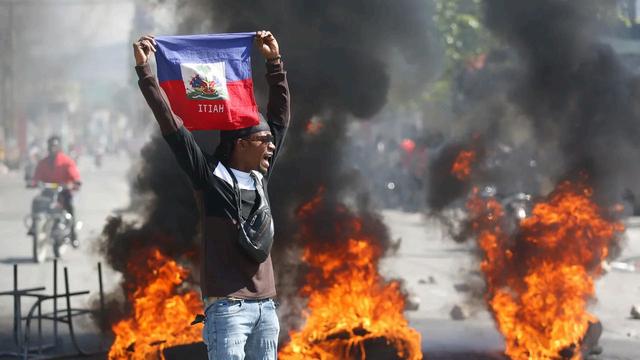
It has become evident that gangsters who currently hold Haiti hostage have modified their strategy by demanding a stake in the country’s governance. Calls for a seat at the table in exchange for a ceasefire, as expressed by renowned gang leader, Jimmy Barbeque Chérizier, raises questions on the incoming government’s ability to govern without the support of rebel factions. This brazenness of gangs must be examined for what it is: systemic failure Consequently, addressing this issue requires a phased multipronged approach, which is more likely to yield sustainable results The most pressing matter is violence containment and order restoration with the support of an external mission which, at all cost, should aim to prevent the colossal loss of civilian life
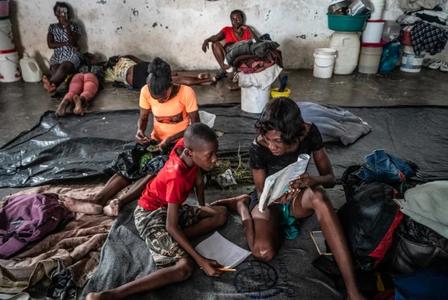
In the mid-to-long term however, the goal should be to disarm and demobilise the myriad of gangs and remove any need for them by deprived communities. This demands extensive intelligence sharing between Haitian security personnel and the United States, as well as countries within CARICOM. It also mandates a systemic overhaul of governance efficacy and a reduction of the vast social inequality that exists, a herculean task for a country, historically known for its gross societal disparities
Both goals can be realised with the wellcoordinated introduction of a Disarmament, Demobilisation and Reintegration (DDR) programme, which aims to end armed conflict and support former combatants as they adjust to civilian life within the framework of national development Though complex to implement, with a multiplicity of actors, a DDR initiative represents a real chance to herald a new era in Haiti’s history Its long-term objective to foster peace would, with the support of ex-combatants, address the plethora of systemic fissures to favour national rebuilding efforts The regional and the international community, with utter respect for sovereignty, must be willing to not only oversee a transition of power but the nurturing of peace, which, for all its attendant costs, must be highly valued to avoid the price of recurrent social turbulence, often paid for by innocent Haitians


A demonstrator holds up a Haitian flag during protests demanding the resignation of Prime Minister Ariel Henry in Port-au-Prince, Haiti, Friday, March 1 2024 (AP Photo/Odelyn Joseph)
There are fewer safe places, such as this boxing arena in Port-au-Prince, where families can escape violence by armed groups Giles Clarke / Getty Images file NBC News March 13, 2024

Caribbean Currents: Navigating Haiti’s Turbulent Waters
Chaz Clifford, IIR Student, MSc Global Studies
On March 14th, 2024, an article was written in the Trinidad Express Newspapers titled, ‘Caricom should do more for Haiti’. It was a title that echoed the belief of so many people in the Caribbean, the wider diaspora and the world, including myself to an extent, but inevitably, in this article, you will discover that it is a weight too hard to lift for CARICOM
As the sun sets over the azure waters of the Caribbean Sea, the region grapples with a crisis that defies easy solutions Haiti, the land of resilience and revolution, stands at a crossroads Its political turmoil, economic fragility, and social unrest have reached a crescendo in 2024 CARICOM faces the daunting task of providing effective assistance to its troubled neighbour, but can it bear the weight of Haiti’s woes?
Haiti’s political landscape resembles a tempesttossed ship Waves of violence, corruption, and instability threaten to capsize any semblance of governance On 25 April 2024, an article in the UN News titled, ‘Senior UN aid official urges comprehensive response to Haiti crisis’ noted that in the first quarter of 2024 alone, gang violence claimed the lives of approximately 2,500 Haitians, leaving schools, hospitals, and religious sites in ruins The absence of key institutions, including the presidency and parliament, exacerbates the crisis.
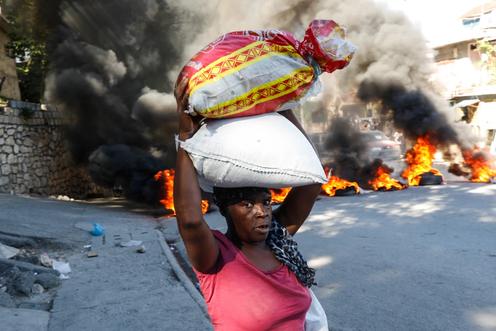
The chaos overtaking Haiti has been bubbling for more than a year, with capital, Port-au-Prince Odelyn Joseph / AP file
To reiterate my introductory statement, I believe that CARICOM can do more for Haiti However, there are many obstacles they must overcome to provide effective assistance, including resource constraints, governance challenges, security risks to aid workers, geopolitical pressures from major powers, and internal fragmentation among member states
A sustainable future for Hait following recommendations: inclusive Council of Ministe Council of Ministers will fo address urgent needs, fro humanitarian aid
2) Strengthen regional cooper CARICOM to pool resources, sh collaborate on crisis response w Haiti’s challenges. 3) Prioritise prioritise programmes that resilience and self-sufficienc Leverage partnerships: region work closely with international donor
countries to pool resou create a more compreh approach 5) Support ci Haitian civil society o leadership is crucial for are tailored to the specifi 6) Address the root cause such as dialogue, reconc institutions that address t problems 7) Strengthen in establish a dedicated ra political crises, akin to Relief Unit 8) Promote mutual respect: Haiti’s sovereignty must be respected and CARICOM’s role should be to support Haitian-led development initiatives.
Haiti's crisis demands a global response in tandem with CARICOM. By working




The chaos overtaking Haiti has been bubbling for more than a year with violence centered on the capital, Port-au-Prince Odelyn Joseph / AP file/NBC News March 15 2024
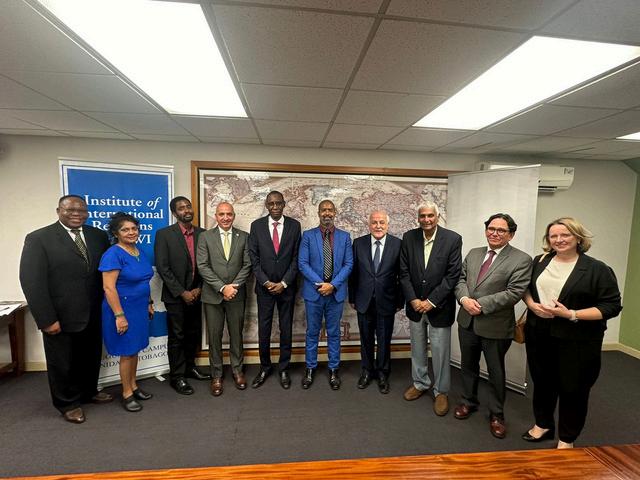
UN Committee on Palestinian Rights Visits the Institute
On April 22nd, 2024, the Institute of International Relations (IIR) had the esteemed privilege of hosting the UN General Assembly Committee on the Exercise of the Inalienable Rights of the Palestinian People
The discussions centered on the multifaceted dimensions of the IsraeliPalestinian conflict, emphasising the imperative of upholding international law, human rights, and the principles of justice and equity.

L- R: Mr. Patrice Chiwota, Senior Political Officer & Secretary of the Committee, Dr. Indira Rampersad, Head, Department of Political Sciences, UWI, Dr. Keron Niles, Lecturer, IIR, UWI, Ambassador Ernesto Soberon Guzman, Permanent Representative of Cuba to the UN, Ambassador Cheikh Niang, Permanent Representative of Senegal to the UN, Dr. Nand Bardouille, Manager, Diplomatic Academy of the Caribbean, Ambassador Riyad Mansour, Permanent Observer of the State of Palestine to the UN, Prof. Winston Dookeran, Professor of Practice, IIR, UWI, Ambassador Jaime Hermida Castillo, Permanent Representative of Nicarag to the UN, Mrs Joanna Kazana, UN Resident Coordinator in Trinidad and Toba Suriname, Aruba, Curacao and Sint Maarten
Caribbean Perspectives: Call for Global Governance Reform Amid Israeli-Palestine Conflict
On December 3rd, 2023, the Institute of International Relations (IIR) and the Caribbean Policy Consortium (CPC) hosted a thought-provoking webinar titled, "Israeli-Palestine War: Perspectives from the Caribbean " The event brought together a diverse panel of experts to discuss the implications of the conflict for the Caribbean and the need for global governance reform
Professor Ivelaw Griffith, co-chair of the event and CPC CoFounder and Fellow, opened the session by emphasizing the interconnectedness of global conflicts and their impact on the Caribbean He highlighted the importance of understanding these implications within the broader context of globalization
Dr Annita Montoute, Acting Director of the IIR, focused on the governance structure of the UN, particularly the Security Council. She highlighted the deficiencies of the current system to prevent such conflicts and called attention to the need for reform
Following this engagement, on May 2nd, 2024, the Ministry of Foreign and CARICOM Affairs announced that Trinidad and Tobago would recognise the State of Palestine This decision marked a significant milestone in Trinidad and Tobago's foreign policy, affirming its
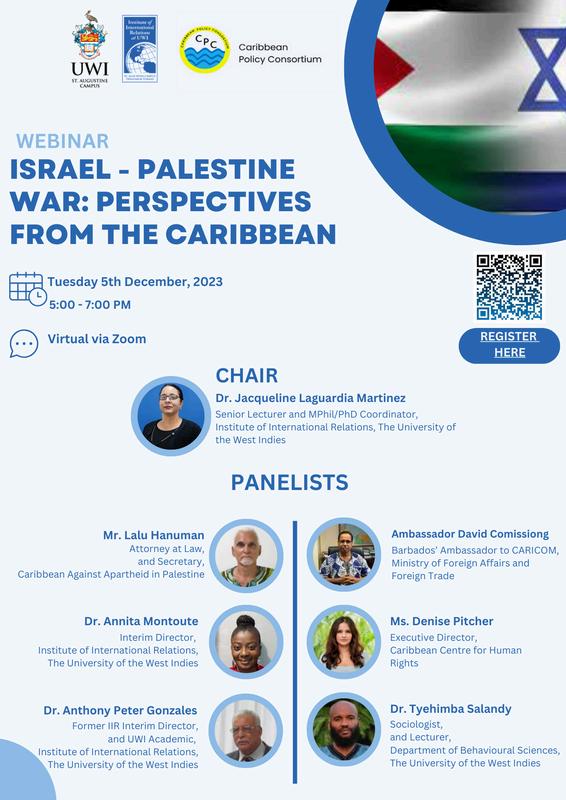
Dr. Anthony Gonzales, Former Interim/Acting Director of the IIR, outlined the transactional nature of Caribbean governments' responses to the conflict, urging for a more consistent and principled stance

H E David Comissiong, Ambassador of Barbados to CARICOM shared insights from CARICOM's perspective, advocating for the expansion of international groups like the G7 and G20, and reform within the UN Security Council. He underscored CARICOM's commitment to a unified foreign policy stance.
The webinar underscored the region's proactive role in advocating for international action to better address conflicts and maintain global peace and security.
The Power of the Decolonising Impetus: A Perspective on the Ongoing Occupation of Palestine
Dr Mya Owen, IIR Alumna, MSc Global Studies
I recently opened a book chapter with an anecdote about a personal experience that I had whilst on the faculty of an International Relations department in Europe A senior colleague’s response to a piece of student work that we were assessing together was a disdainful ‘Decolonising is all the rage now ’ That comment left a longlasting impression on me, as it sought to frame the decolonising impetus within the academy as a meaningless fad In reality, the growing awareness of colonialism, coloniality and decolonisation both within and outwith the academy is showing itself to be a powerful political agent It is perhaps most loudly announcing its influence right now in the response to the most recent round of the Israeli-Palestinian conflict
Decades ago, Edward Said began this conversation, pointing out the orientalist discourses which have underwritten this conflict and Dag Tuastad has evolved these logics in his conceptualisation of neo-Orientalism. Today, the spirit of this argument has made it into the mainstream and it is possible to see persons increasingly recognising and rejecting the racialised, monolithic ‘barbarism’ arguments often used to other, dehumanise and securitise the Palestinian people The same arguments used to ‘justify’ the type of actions which the International Court of Justice has insisted that Israel address to avoid what might be classed as genocidal acts
Patrick Wolfe and Rashid Khalidi have also presented us with Settler Colonialism perspectives which illustrate how Israel functions as a settler colonial state, dispossessing, displacing and replacing an entire nation, under the guise of selfdefence

The complement to this argument is developed further by others such as Noura Erakat who emphasise how that colonial dynamic is a product of Western neo-imperialism. In this way we are able to see context of Israeli occupation as both one of contemporary colonialism in the literal sense, but also one of coloniality where not only the racialised discourses but the actual imperial mechanics of the former European colonial project continue to impact contemporary politics and lived experiences in Palestine
Whether people are most influenced by postcolonial, settler colonial or coloniality/modernity perspectives on this conflict, one final thing has become obvious; social media has irrevocably altered the geopolitics of knowledge production. Academic, Malaka Shwaikh’s LinkedIn posts sharing the unfathomable experiences faced by her family in Gaza have undoubtedly reached people who would never encounter her academic publications. TikTok and Instagram are civilian frontlines of the conflict where content creators from and in Gaza, alongside Jewish counterparts challenge mainstream narratives using many of the ideas highlighted above They teach history, report on the atrocities of war, fundraise and share activism strategies, all contributing to an increased counter-securitisation of the Israeli state –something which Western powers have successfully avoided for over half a century.

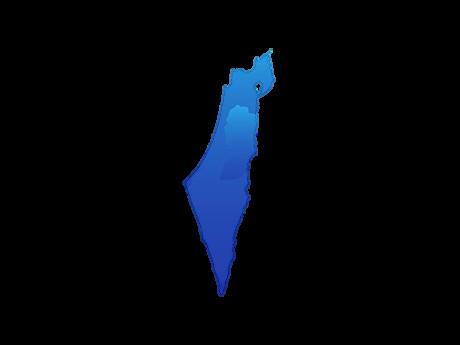
So yes, my former colleague is right decolonising is all the rage now and it is changing not only the face of international politics, but those with the power to be agents of that change

On Oct 22, 2023, hundreds gathered for two rallies in downtown Raleigh on the left, a rally to call for support to Israel and the release of hostages in Gaza, and on the right, a rally to demand a ceasefire and freedom for Palestinians Matt Ramey/For WUNC / Composite Created By WUNC
Exploring the Guyana – Venezuela Controversy, the Argyle Declaration and Implications for International Law
In the aftermath of the Argyle Declaration, a webinar titled, "The Guyana-Venezuela Controversy: The Argyle Declaration, Implications for International Law and the Caribbean" was convened to delve into the complexities of the ongoing dispute The event was hosted by the Institute of International Relations (IIR), in collaboration with the Caribbean Policy Consortium (CPC) and the Faculty of Law on February 22nd, 2024.
Panelists examined the Argyle Declaration as a diplomatic measure to prevent armed conflict over the oil-rich Essequibo region
The discussion began with opening and welcome remarks from Dr Annita Montoute, Acting Director of the IIR, highlighting the session's goal of exploring the international law and diplomatic dimensions of the Guyana-Venezuela controversy and contributing new perspectives to the discourse
Professor Ivelaw Griffith, co-founder and Fellow of the CPC, emphasised its diplomatic successes in the triumph of diplomacy it showcased and the de-escalating of a potential armed conflict, while acknowledging areas where it fell short, such as its inability to reverse Venezuela's provocative actions Mr Carl Greenidge, Former Minister of Foreign Affairs of Guyana, questioned the effectiveness of dialogue; while recognising that the Declaration may have averted immediate conflict, he cautioned against overestimating its long-term effectiveness in resolving the matter. Dr Riyad Insanally, Fellow with the CPC, was of the view that more preparatory diplomatic work should have preceded the Argyle meeting to ensure a more substantive outcome
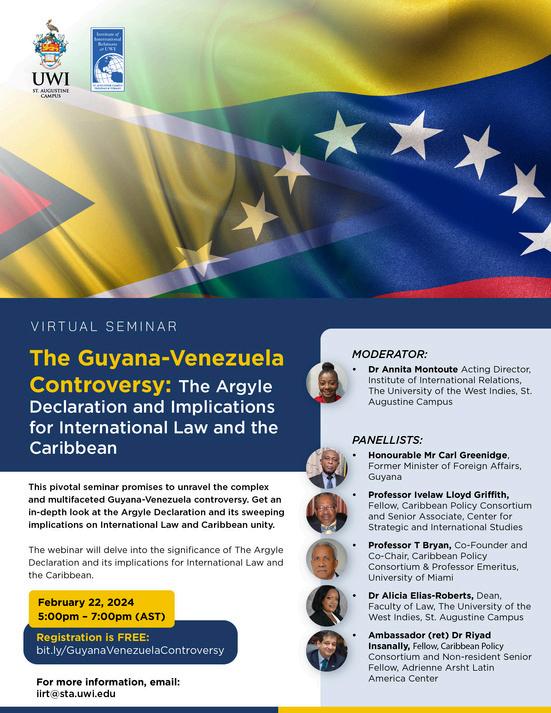
Professor Anthony Bryan, co-founder and co-Chair of the CPC and Professor Emeritus of the University of Miami, analysed Venezuela's strategic motivations, particularly in energy projects like the Dragon Gas agreement. Looking ahead, he suggested that the Guyana-Venezuela controversy could serve as an opportunity for transformative change in regional energy dynamics, pointing to collaborative energy agreements among Caribbean countries as a potential pathway to energy security and economic development.
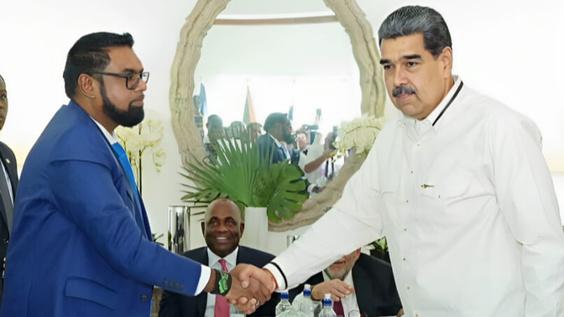
Dr. Elias-Roberts, Dean of the Faculty of Law, UWI, St Augustine Campus discussed the international law implications, advocating for adherence to legal processes. Despite some limitations of the International Court of Justice, she expressed confidence in the court's ability to provide a final and binding resolution to the dispute, highlighting the importance of adhering to established legal processes
The webinar concluded with panellists addressing concerns about Venezuela's military threat and the importance of regional unity.

Guyana’s and Venezuela’s leaders met on Dec 14, 2023 resulting in the non-binding Declaration of Dialogue and Peace of Argyle Source: Guyana Times
Experts Convene to Discuss CSME Impact at Panel Discussion
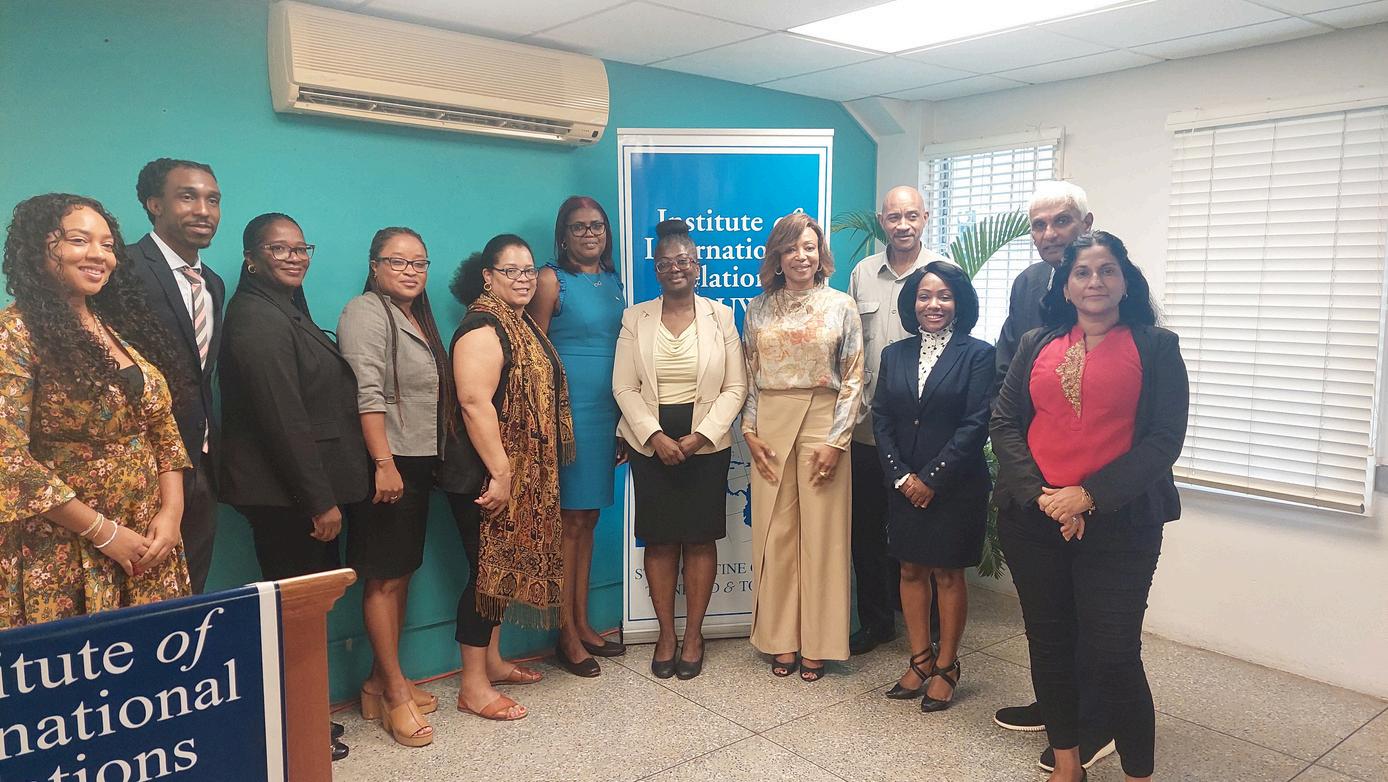
[L-R]: Ms Debra Lewis, Dr Talia Esnard, Ms Wanya Illes, Ms Bevereley Macdonald, Dr Annita Montoute, Ms Joanne Brooks, Mr John Clarke, Ms Ayesha Wharton, Prof Winston Dookeran, and Ms Marijke Bhaggoe, pictured after the panel discussion
On December 8th, 2023, a panel discussion was held at the Institute of International Relations (IIR), marking the culmination of the CARICOM Single Market and Economy (CSME) Focal Point Exchange Programme in Trinidad and Tobago. This event, hosted in collaboration with the Ministry of Foreign and CARICOM Affairs, brought together experts to discuss the impact of the CSME on the Caribbean region.
Speakers included: Dr Talia Esnard, Head of the Department of Behavioural Sciences and Senior ustine; Ambassador Dame r Ambassador to the US for Ms Wanya Illes, Deputy ee Movement and Labour at at; Mr. Salas Hamilton, st at the CARICOM Annita Montoute, Acting nternational Relations; and of the CSME Unit at the RICOM Affairs of Trinidad
This meeting was attended by several other distinguished guests, including Prof. Winston Dookeran, Former Minister Foreign Affairs of Trinidad and Tobago, Ms Ayesha Wharton, Director of Caribbean and CARICOM Affairs of the Ministry of Foreign and CARICOM Affairs of Trinidad and Tobago and CSME Focal Points: Mr. Keimar Watson (Barbados), Ms. Debra Lewis (Montserrat), Ms Beverley Macdonald (Guyana), Mr John Clarke (Jamaica) and Ms. Marijke Bhaggoe (Suriname)
In her opening remarks, Dr. Annita Montoute, stressed the importance of such discussions to merge theory and practice While she pointed to the importance of being critical of regional structures, she highlighted the need to recognize the progress that has been achieved by the regional integration project.
ring Extra-regional Opportunities: bbean Business Focus on Africa
Panellists
n October 5th, 2023, the Institute of ternational Relations, in artnership with the Caribbean xport Development Agency and the hridath Ramphal Centre for ternational Trade Law, Policy, and ervices, gathered practioners and perts for the webinar, "Caribbean usiness Focus on Africa." The event athering around 200 participants, oderated by Dr Jan Yves Remy, irector of the Shridath Ramphal entre, provided a platform to plore the untapped economic otential between Caribbean and frican countries
Dr Annita Montoute, Acting Director, IIR, UWI, opened the event with a reminder of its significance, stating, “Caribbean-Africa relations go back to the transatlantic slave trade but in contemporary times there have been positive signs towards a more constructive relationship in the political cultural and economic spheres.”
Presentations delved into topics such as the promise of Africa for Caribbean businesses, opportunities for the Afreximbank in the Caribbean, financing Caribbean investment, and strategic considerations for future collaboration With insightful discussions and actionable insights, the webinar underscored the importance of crossregional partnerships in driving sustainable economic growth and fostering mutual prosperity

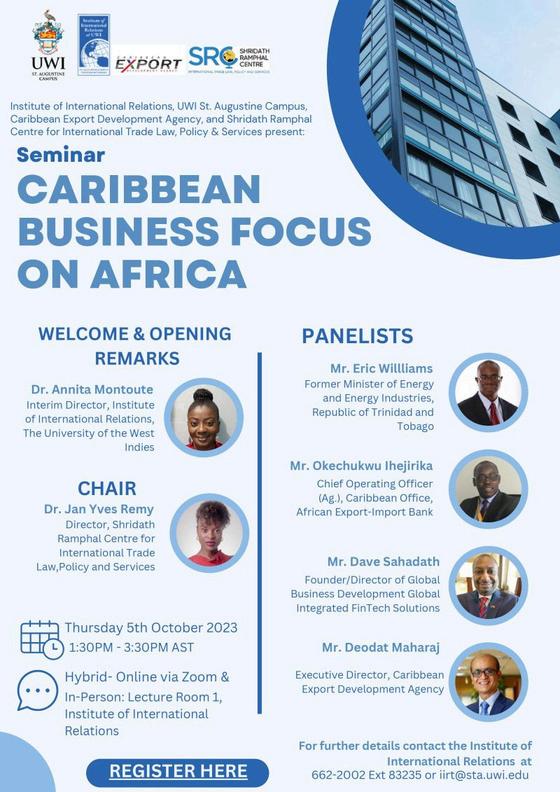
CARICOM at 50 Symposium and Youth Forum: Shaping the Future of Caribbean Integration
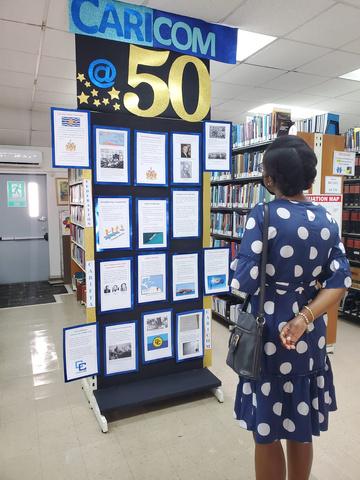
On Friday, April 14, 2023, the Institute of International Relations (IIR) collaborated with the CARICOM Secretariat to host the two ground-breaking "CARICOM at Fifty" events: a symposium and youth forum.* The events both took place in hybrid format, via Zoom and at the IIR, UWI's St Augustine Campus
Panellists included: Professor Wendy Grenade, Senior Lecturer in Political Science, St George’s University, Dr Terri Ann Gilbert-Roberts, Research Manager in the Economics Youth and Sustainable Development Directorate, Commonwealth Secretariat, H.E. Ambassador Ivan Ogando, Ambassador of the Dominican Republic to Belgium and Head of Mission to the European Union, Dr Kai Ann Skeete, Trade Research Fellow, Shridath Ramphal Centre for International Trade Law, Policy and Services, UWI Cave Hill Campus, Dr. Anthony P. Gonzales, Senior Fellow, IIR, Professor Patsy Lewis, Director of the Center for Latin American and Caribbean Studies, Brown University, and Mr Richard Jones, Officer-in-Charge, Caribbean Policy Development Centre
The panel discussion addressed the relevance of CARICOM as a key driver of Caribbean integration, in a global and regional context that is complex and poses major development challenges for the Caribbean
Dr Carla Barnett, CARICOM’s Secretary General, updated participants on the organisation’s objectives and actions considering the shifting international environment and the evolving development challenges that Caribbean Small Island Developing States (SIDS) face - from climate change, economic instability to global hegemonic disputes
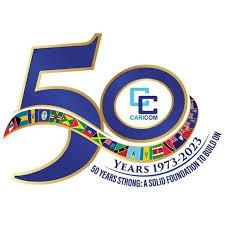
Senator the Honourable Dr Amery Browne remarked that The UWI and IIR help promote reflection and dialogue to support efforts towards regional integration and enhance CARICOM’s role as a leading regional mechanism
Issues related to the organisation’s governance structure, youth participation, foreign policy coordination and functional cooperation were also discussed Interesting proposals were presented to lift CARICOM’s role in the region and reinvigorate its performance after a half century of existence
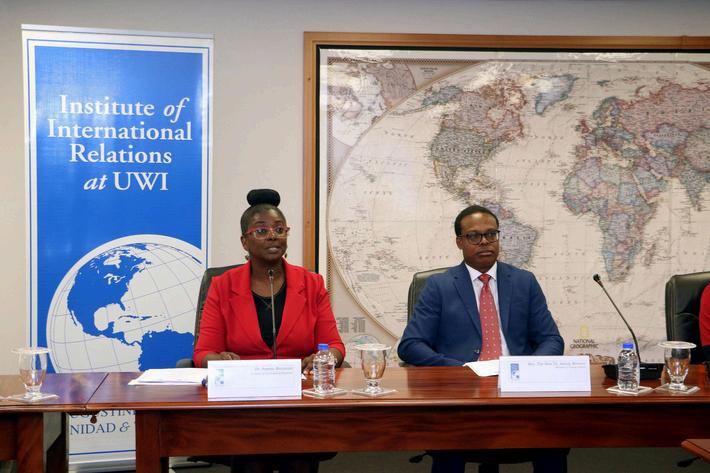
Dr Annita Montoute, Acting Director of the IIR and Senator the Honourable Dr Amery Browne, Minister of Foreign and CARICOM Affairs of Trinidad and Tobago at the CARICOM at 50 Symposium
*These events fall outside of the issue period but are included in this revived issue because of its significance
SIDS4 Caribbean Agenda Discussed at Symposium
On May 17th, the Diplomatic Academy of the Caribbean (DAOC) in partnership with the Australian High Commission and Embassy of the French Republic to the Republic of Trinidad and Tobago hosted a symposium, titled, "SIDS4 and the Caribbean's Diplomatic Agenda: Quo Vadis?"
The event engaged participants reflecting on Caribbean multilateral diplomacy in the context of the Fourth International Conference on Small Island Developing States (SIDS4) which was hosted by Antigua and Barbuda from May 27-30, 2024 under the theme of 'Charting the Course Toward Resilient Prosperity'. Panellists included H.E. Walton Webson, UN Permanent Representative for Antigua and Barbuda, Mr Sainivalati S. Navoti, Chief of the SIDS Unit at UN-DESA, Ms. Tishka Hope Francis from UN-OHRLLS, and Ms Amrikha Singh from the CARICOM Secretariat, explored topics such as the actors involved in SIDS4, the role of the UN in supporting SIDS, and CARICOM's diplomatic interests and advocacy The symposium served as a pivotal platform for in-depth dialogue and strategic analysis as the region navigated the challenges and opportunities of the SIDS agenda.
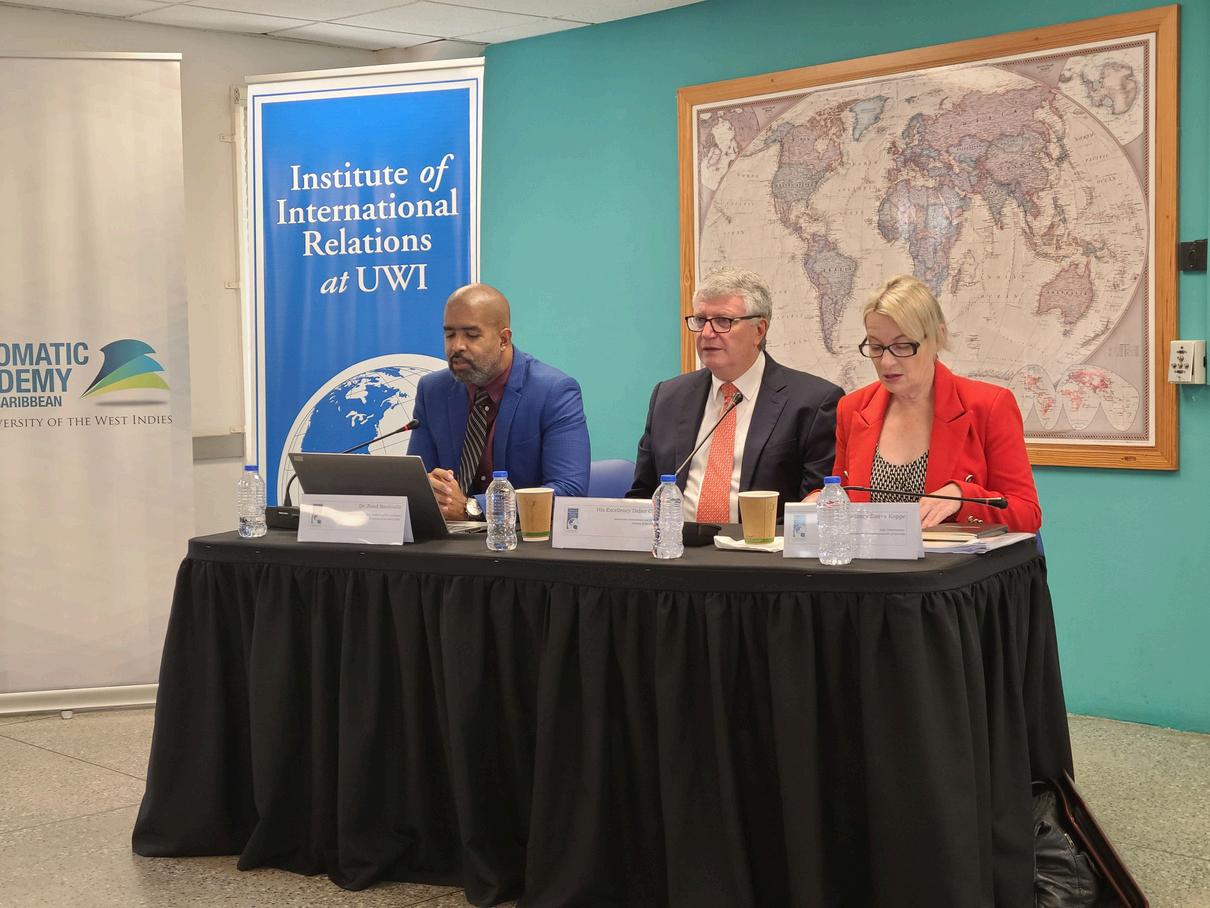

Participant views the CARICOM at 50 display at the Norman Girvan Library
L- R: Chair of the event, Dr Nand Bardouille, Manager of the DAOC, with partners of the event, H E Didier Chabert, Ambassador of the France to the Republic of Trinidad and Tobago and H E Sonya Koppe, High Comissioner of Australia to the Republic of Trinidad and Tobago
Celebrating 30 Years of the ACS and Exploring Its Regional Impact and Current Goals
On May 29th, 2024 the Institute of International Relations (IIR) hosted Association of Caribbean States (ACS) Secretary-General, H.E. Rodolfo Sabonge for a Diplomatic Dialogue to commemorate the 30th anniversary of the ACS The presentation highlighted the organisation's regional impact over the past three decades and outlined its future goals.
Secretary-General Sabonge emphasised the importance of conducting an appraisal of the progress made since the 1992 'A Time for Action' document of the West Indian Commission, evaluating what goals have been achieved and identifying areas that need updating. He also highlighted the necessity of regional integration and the ACS’s role in promoting Caribbean development, discussing the need for a new strategic plan to address challenges and enhance cooperation, particularly in air transportation and economic integration
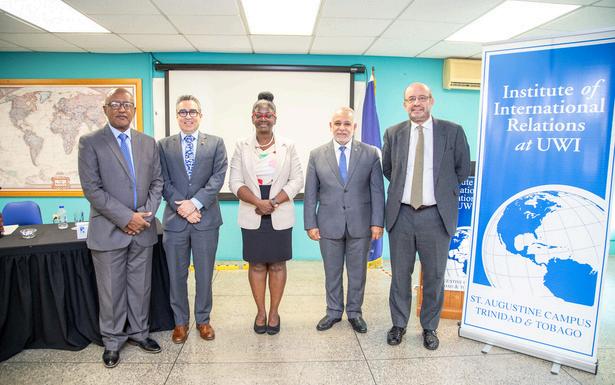

The new strategic plan should aim to better coordinate with other regional organizations and address the evolving realities of regional integration. Secretary-General Sabonge stressed that the ACS must proactively address challenges with a clear vision and plan of action which will be outlined in the coming year.
H E
and H E
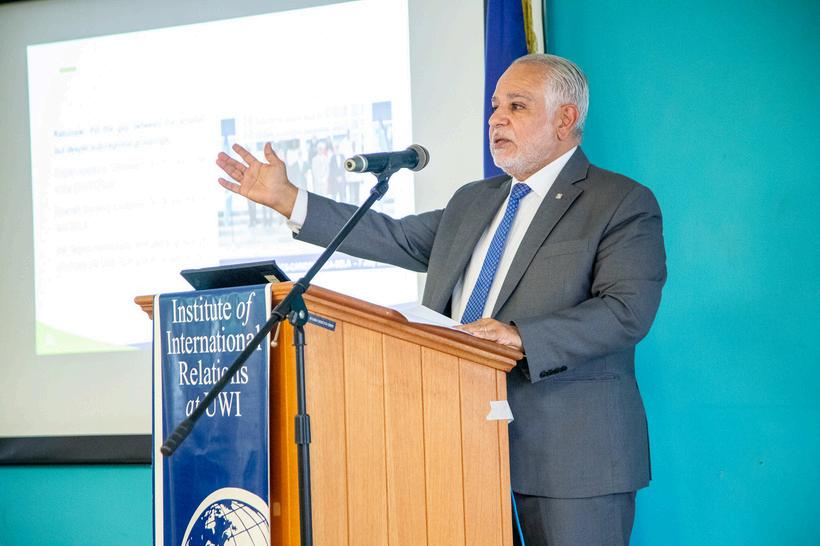
Exploring AI in the Caribbean: Opportunities, Challenges,
and Ethical Considerations

In his closing remarks, Mr Taylor highlighted the necessity of a thorough and inclusive policy development process, involving a diverse range of stakeholders, including the non-technical community Despite the progress made, he stressed that the region still has work to do to ensure it is not left behind in the global AI landscape
On March 22nd, 2024, the Institute of International Relations (IIR) and the Caribbean Telecommunications Union h ce: Opportunities and Threats for the Caribbean " Dr An IIR wh the unc with th As suc much n relates Profess governa internat organis Telecom Nations opportu AI for Caribbean; Dr Yaw focused on regional integration as a multiplier of AI opportunities; Dr Hill examined the implications of AI for education and academia, with an emphasis on curriculum transformation; and Dr. Ramlal explored ethical considerations in AI governance, particularly in education and academia.
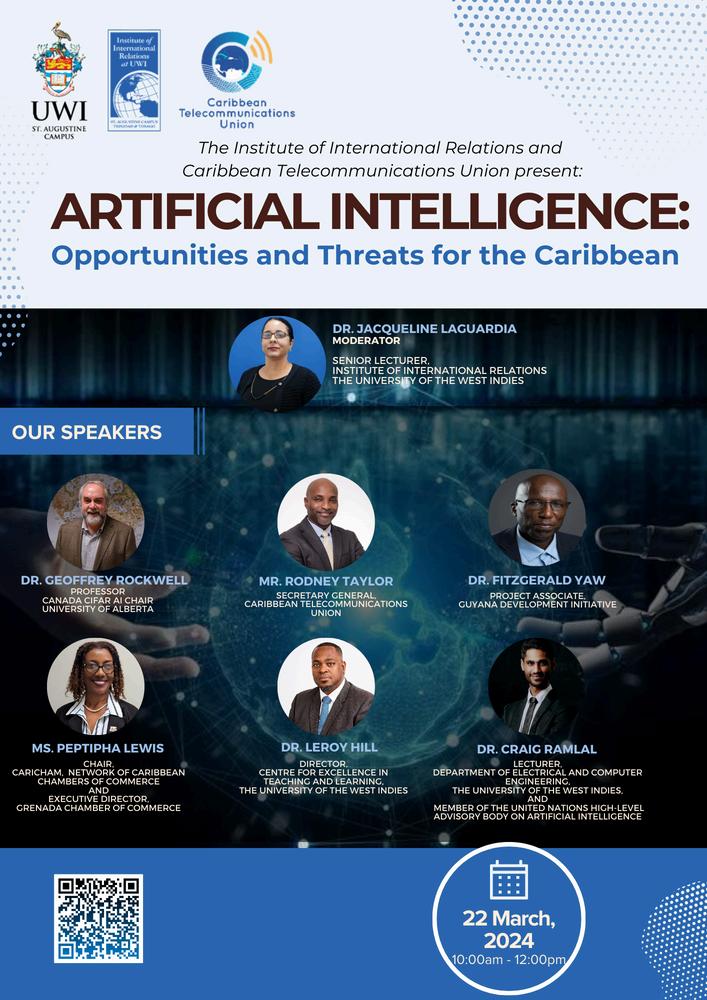

ACS Sec Gen Rodologo Sabonge delivers his presentation
L-R:
Gustavo Olivares, Amb of Cuba to Trinidad and Tobago, H E Alvaro Cordero, Amb of Venezuela to Trinidad and Tobago, Dr Annita Montoute, Acting Director of the IIR, H E Rodolfo Sabonge, ACS Sec Gen
Fernando Nogales, Ambassador of Spain to Trinidad and Tobago
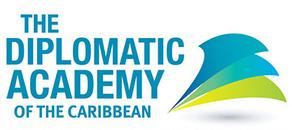
Transforming Diplomacy-
The DAOC’s 10-Year Journey and Future Vision
Reprint from UWI News
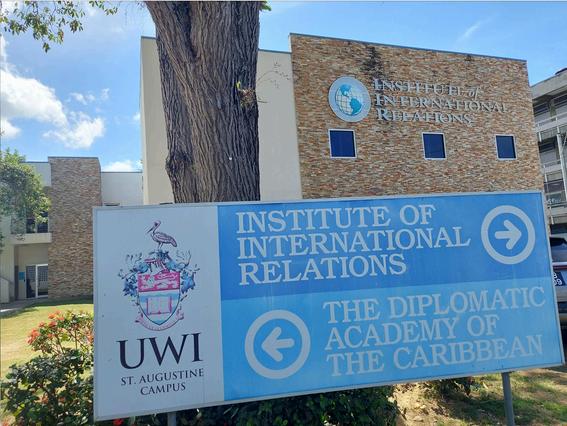
The UWI St Augustine Campus-based Diplomatic Academy of the Caribbean (DAOC) recently brought the curtain down on a series of activities held in May 2024 to commemorate its 10th anniversary
The DAOC was established on May 6, 2014, with a primary diplomacy-related training mandate The professional development training arm of The UWI Institute of International Relations (IIR), the Diplomatic Academy is a unique offering in the diplomatic world Unlike diplomatic training academies elsewhere, which typically operate as adjuncts to foreign ministries, the DAOC has the benefit of being located within a graduate academic institution that focuses on international relations.
Acting IIR Director Dr Annita Montoute underscored that this first-of-its-kind academy in and for the Caribbean pays homage to and shores up the IIR’s historic mission The IIR, whose advent was the brainchild of Trinidad and Tobago’s first Prime Minister Dr Eric Williams, is the result of high-level efforts to build requisite capacity in the then-fledgling independent nations of the Caribbean They intended to cultivate the knowledge and expertise required to skillfully navigate the international system into which they had been thrust as sovereign states
DAOC Manager Dr Nand Bardouille hailed the vision and foresight of UWI and IIR leaders, along with representatives of the then-Trinidad and Tobago government of the day, who, over a decade ago championed the establishment and construction (adjacent to the IIR) of The DAOC. The Diplomatic Academy was established under the leadership of the then-IIR Director, Professor Andy Knight Mr Winston Dookeran, Professor of Practice at the IIR, was also instrumental in conceptualizing the Academy and marshalling requisite support for The DAOC capital project From 2012 to 2015, Mr Dookeran served as Trinidad and Tobago’s Minister of Foreign Affairs.
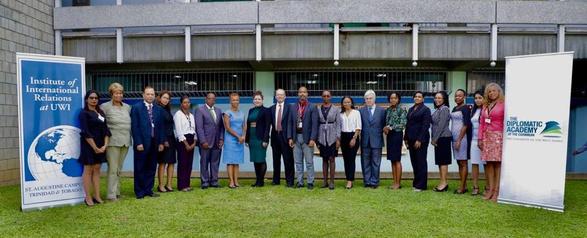
If you are interested in reading further, click here
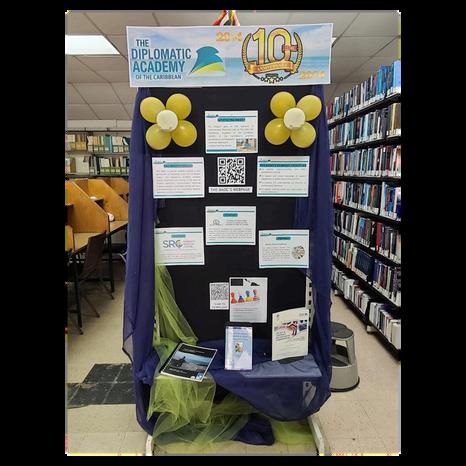
His Excellency Dennis Francis, Ambassador Extraordinary and Plenipotentiary Permanent Representative of the Republic of Trinidad and Tobago to the United Nations (UN) and the current President of the UN General Assembly also contributed to the conceptualisation of the Academy Indeed, prior to taking up his current post, Ambassador Francis served as a colecturer for The DAOC’s flagship Protocol and Diplomacy module The then-Pro-Vice-Chancellor and Principal of The UWI St Augustine Campus, Professor Clement Sankat, and other distinguished friends of the IIR also played key roles in the establishment of The DAOC.

DAOC’s 10-Year Anniversary Display at the Norman Girvan Library
The building and signage of the IIR and DAOC
Professor Jessica Byron, Then-Director of the IIR and DAOC Manager Dr Nand Bardouille with the cohort of the module ‘Understanding International Sanctions: Implications for the Caribbean,’ in March 2020

I Am Latin America
Highlights from the Latin American Forums at the IIR
The Strategic Importance of Trinidad in the Venezuelan Independence Movement (1797-1813) by His Excellency Mr Álvaro Sánchez Cordero
September 21st, 2023
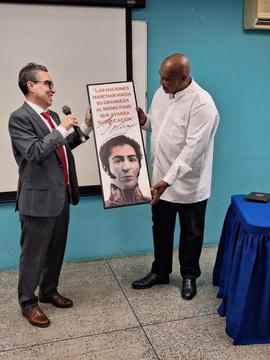
Trinidad's strategic location and its use as a base for revolutionary activities made it a crucial hub for supplying arms, recruiting fighters, and planning key operations during the Venezuelan Independence Movement from 1797 to 1813
Maria Montez and Her Influence on Dominican Cinema by His Excellency,Wellington Darío Bencosme Castaños
María Montez, a Dominican actress known as the "Queen of Technicolor," made a significant impact on Hollywood in the 1940s with her exotic roles in adventure films, paving the way for greater recognition of Dominican talent in international cinema Her legacy continues to inspire Dominican filmmakers and actors
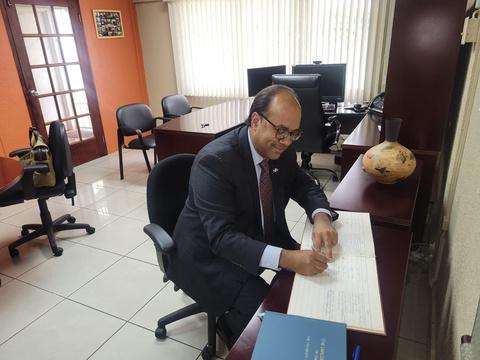
E Wellington

October 19th, 2023
Colombia’s Foreign Policy Towards the Caribbean (2003-2023) by His Excellency William Bush
Colombia's foreign policy towards the Caribbean focuses on enhancing regional cooperation, combating drug trafficking, and fostering economic and cultural ties, aiming to strengthen diplomatic relations and collaborative development within the region
L-R: Dr Annita Montoute, Acting Director of IIR, H E William Bush and Professor Lancelot Cowie
March 21st, 2024
Afro-descendants in Panama by Her Excellency, Selvia Miller Palmer
Afro-descendants in Panama, primarily from Caribbean origins, significantly influenced the country's culture, economy, and infrastructure, notably through their critical role in constructing the Panama Canal and enriching Panamanian society with Caribbean traditions and customs.
L-R: Dr Anne-Marie Pouchet, Lecturer in Spanish at UWI, and H E Selvia Palmer
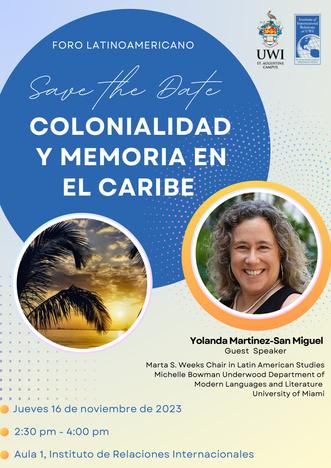
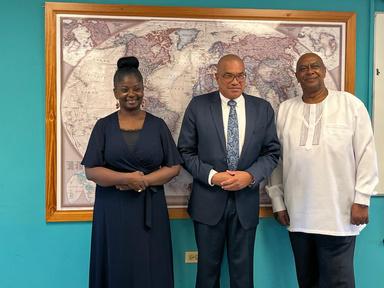
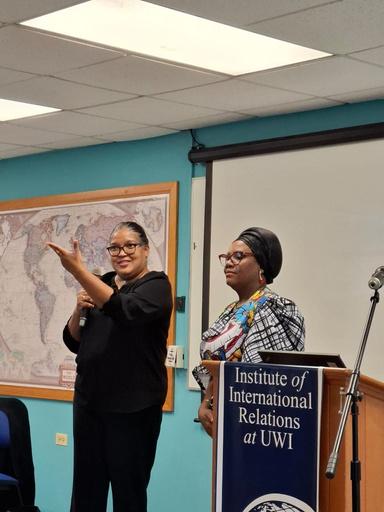
May 16th, 2024
Colonidad y Memoria en el Caribe by Professor Yolanda Martinez-San Miguel
Professor Martinez-San Miguel examined the Caribbean as one of the many insular regions viewed as overseas possessions Her argument was developed through three thematic sections: representations of the Caribbean in imperial and colonial maps post-1492 and 1800; historical moments proposing multi-state alternatives to the sovereign nation-state in the 19th and 20th centuries; and reflections on the colonial notion of territory in Latin America and the context of U S imperial expansion
H E Álvaro Cordero presents Professor Lancelot Cowie with a poster of Simón Bolívar
H
Castaos signs the visitor’s book at the IIR




by Ms Leeanna Joy Seelochan, IIR MPhil student
In collaboration with the Embassy of the Dominican Republic to Trinidad and Tobago, The Institute of International Relations will be embarking on a study trip to the Dominican Republic on July 7th - 14th, 2024
The Dominican Republic, named by Bartholomew Columbus, is celebrated for its vibrant culture, highlighted by the infectious rhythms of bachata and merengue With a population exceeding 10 million, primarily Spanish-speaking, the nation offers ample opportunities in culture, citizenship, tourism, investment, and exports Notably, the government aims to establish English as a second official language, underlining its dedication to global engagement.
“Dios, patria, libertad” - “God, fatherland, liberty”


. Beyond its cultural allure, the Dominican Republic stands out as a premier destination in Central America and the Caribbean, attracting over 10 million visitors in 2023 Additionally, it leads the region in Foreign Direct Investment, a testament to effective collaboration between the public and private sectors The country is undeniably a land of opportunity and is among the highest projected GDP growth in Latin America for 2023 and 2024 Guided by a strategic vision, the nation is committed to nurturing innovation in its industrial and service sectors, ensuring enduring prosperity
“...there is no formula for success, but if it did exist, believe me, it would have to have the Dominican seal”
Luis Abinader, President of the Dominican Republic
Moreover, with respect to services, alongside the tourism industry, the Spanish-speaking Caribbean country showcases tremendous growth in its film industry, with over 100 productions made in 2023, of which over 45 were foreign productions. Notable productions such as; "The I-land" (2019), "47 Meters Down: The Next Chapter" (2019), "Falling" (2016), "The Long Song" (2010), "Fast & Furious 3 5" (2009), "Miami Vice" (2006), "The Good Shepherd" (2006), "Jurassic Park" (1993), "Rambo II" (1985) d "Th G dfather II" (1974) fil d or p ti ll fil d i th D.R.



For more information on the student trip to the D.R. in July 2024, please contact the
Engaging in Diplomatic Dialogues
Ambassador of Brazil, H.E. Rodrigo do Amaral
On November 2nd, 2023, His Excellency Rodrigo do Amaral Souza, Ambassador of the Federative Republic of Brazil, delivered a thought-provoking presentation at the Insitute of International Relations (IIR) titled, "Lula is Back- What does it mean for Brazil, Latin America and the Caribbean and the World?"
Souza

The event sparked discussions on the implications of former President Luiz Inácio Lula da Silva's return to the political arena
Attendees engaged in dialogue regarding the potential impacts on Brazil's domestic politics, regional dynamics in Latin America and the Caribbean, and broader global relations. Ambassador Souza's insights provided valuable perspectives on the evolving landscape shaped by Lula's reemergence onto the political stage

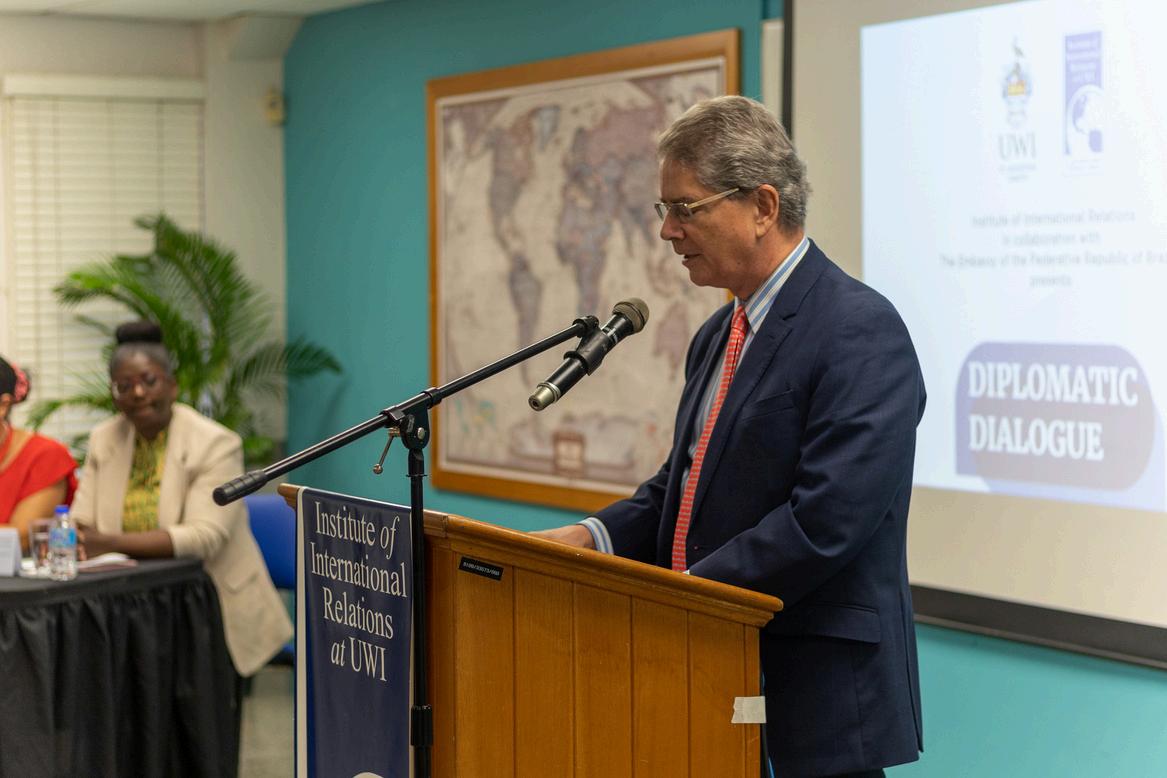
Ambassador of Spain, H.E. Fernando Nogales
On May 14, 2024 the Institute of International Relations (IIR) hosted Ambassador Fernando Nogales, who delivered a lecture on Spain's diplomatic ties with the Caribbean and Latin America H E Nogales delved into the historical backdrop of this relationship, tracing Spain's pivotal role in fostering peace during Central America's tumultuous 1980s
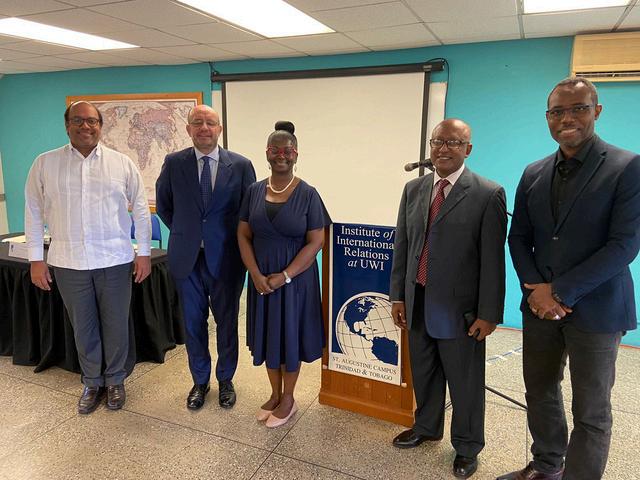
He underscored the profound cultural affinity and economic interdependence between Spain and its Latin American and Caribbean counterparts, highlighting Spain's substantial investments in the region since the 1990s Additionally, H E Nogales shed light on Spain's commitment to regional integration and development, emphasising the need for continued collaboration and innovative approaches to address shared challenges.
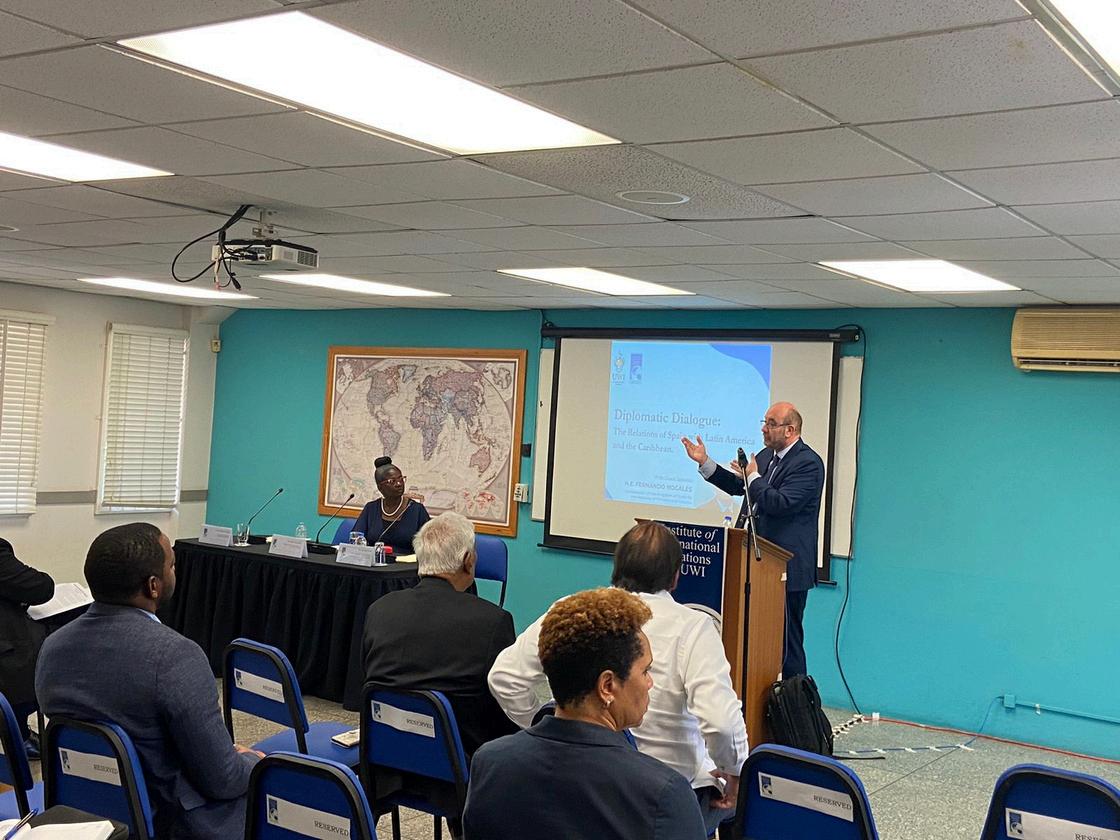
H E Fernando Nogales, Ambassador of the Kingdom of Spain to Trinidad and Tobago delivers his presentation at the IIR
H E Rodrigo do Amaral Souza, Ambassador of Brazil to Trinidad and Tobago delivers his presentation at the IIR
L-R: H E Wellington Castanos, Ambassador of the Dominican Republic to Trinidad and Tobago, H E Fernando Nogales, Dr Annita Montoute, Acting Director of the IIR, and H E Gustavo Daniel Veliz Olivares, Ambassador of Cuba to Trinidad and Tobago
Other IIR Public Events
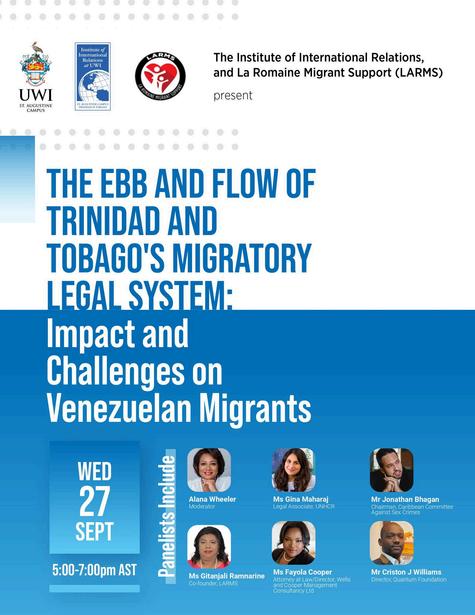
The Ebb and Flow of Trinidad and Tobago's Migratory Legal System: Impact and Challenges on Venezuelan Migrants
Partners- IIR and La Romaine Migrant Support (LARMS) September 27, 2023
Moderator: Ms. Alana Wheeler- Consultant.
Speakers:
❖ Dr. Annita Montoute - Welcome and Opening Remarks, Acting Director, Institute of International Relations, The University of the West Indies
❖ Ms Gina Maharaj - Legal Associate, United Nations High Commissioner for Refugees
❖ Ms. Gitanjali Ramnarine - Co-founder, La Romaine Migrant Support.
❖ Mr Jonathan Bhagan - Chairman, Caribbean Committee Against Sex Crimes
❖ Ms Fayola Cooper - Attorney at Law/Director, Wells and Cooper Management Consultancy Ltd.
❖ Mr Criston J Williams - Director, Quantum Foundation
This webinar addressed the experiences and challenges of the Venezuelan migrants, and it identified the gaps in the legal frameworks and solutions to mitigate them
Caribbean/ China: Connection and Cooperation
Partners- IIR, Embassy of the People’s Republic of China in the Republic of Trinidad and Tobago, and The UWI Arthor Lok Jack Global School of Business
November 10, 2023
Chair: Mr Mariano Browne - Chief Executive Officer, The UWI Arthor Lok Jack Global School of Business.
Speakers:
❖ Senator the Honourable Dr Amery Browne - Minister of Foreign and CARICOM Affairs.
❖ His Excellency Fang Qiu - Ambassador, Embassy of the People’s Republic of China in the Republic of Trinidad and Tobago
❖ Dr. Annita Montoute - Opening Remarks, Acting Director, Institute of International Relations, The University of the West Indies
❖ Professor Winston Dookeran - Secretary General, Euclid University
❖ His Excellency Rodolfo Sabonge - Secretary General, Association of Caribbean States
❖ Professor Zhang Xiaotong - Institute of Belt and Road Initiative & Global Governance, University of Fudan.
❖ Ms Yueshu Zhao - Research Analyst, Inetnational Monetary Fund

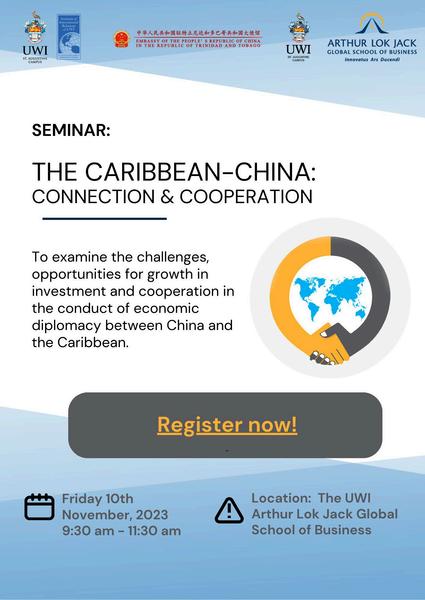
The event examined the challenges, opportunities for growth and investment, and cooperation in the conduct of economic diplomacy with China and the Caribbean
Latin America-Caribbean relations in a multipolar world
Partners- IIR and Caribbean Policy Consortium
November 30, 2023
Moderator: Professor Jessica Byron – Fellow, Caribbean Policy Consortium and Former Director, Institute of International Relations, The University of the West Indies.
Speakers:
❖ Dr. Annita Montoute - Welcome and Opening Remarks, Acting Director, Institute of International Relations, The University of the West Indies
❖ Dr Stacy Richards-Kennedy - Regional Manager for the Caribbean, CAF- Development Bank of Latin America and the Caribbean.
❖ Dr Raymond Mark Kirton - Honorary Senior Fellow, Institute of International Relations, The University of the West Indies
❖ Dr. Jacqueline Laguardia-Martinez - Senior Lecturer and MPhil/PhD Coordinator, Institute of International Relations, The University of the West Indies
❖ Professor Lancelot Cowie - Honorary Professor of Latin American Studies, Institute of International Relations, The University of the West Indies
❖ Mr Michael Hendrickson - Economic Affairs Officer, Economic Development Unit, The United Nations Economic Commission for Latin America and the Caribbean.
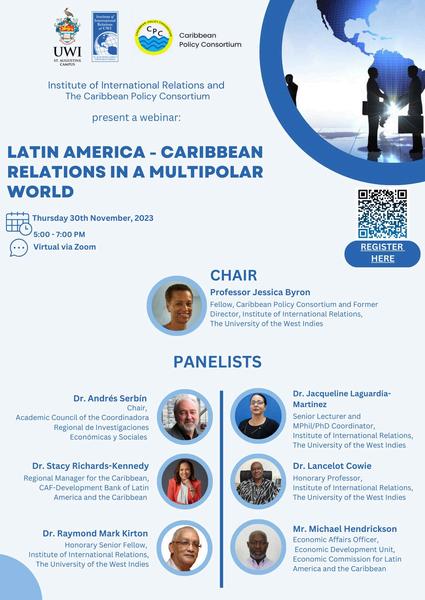
The seminar explored the state of the Latin America-Caribbean relationship in the context of a shifting global order
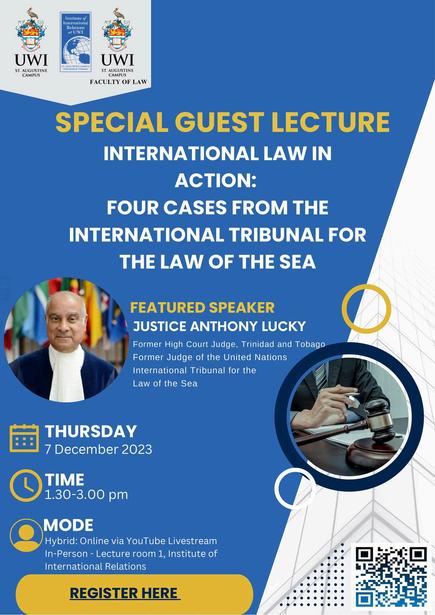

International Law in Action: Four cases from the International Tribunal for the Law of the Sea
December 7, 2023
Justice Anthony Lucky Former High Court Judge, Trinidad and Tobago, and Former Judge of the United Nations International Tribunal for the Law of the Sea.
The special guest lecture focused on practical applications of International Law in maritime disputes.
Homeward Bound: Navigating Repatriation and Reintegration of Returnees from Syria
February 20, 2024
Moderator: Dr. Malisa Neptune-Figaro – Lecturer, Department of Behavioural Studies, The University of the West Indies
Speakers:
❖ Dr Annita Montoute - Welcome and Opening Remarks, Acting Director, Institute of International Relations, The University of the West Indies.
❖ Mr Sheikhmus Ahmed - Head of the Office of Displaced Persons and Refugees, The Autonomous Administration of North and East Syria
❖ Ms. Poonam Taneja - Host & Reporter, BBC Sounds & CBC Podcasts.
❖ Mr Patricio Gálvez - Coordinator of Cultural Projects, Repatriate the Children- Sweden
❖ Ms Sareta Ashraph- Senior Legal Consultant to the Centre of Justice & Accountability, The US Holocaust Memorial Museum, & Atlantic Council.
❖ Dr Timothy Affonso - Deputy Dean and Lecturer, Faculty of Law, The University of the West Indies
This webinar provided information on various issues relating to the repatriation and reintegration of foreign terrorist fighters from Syria
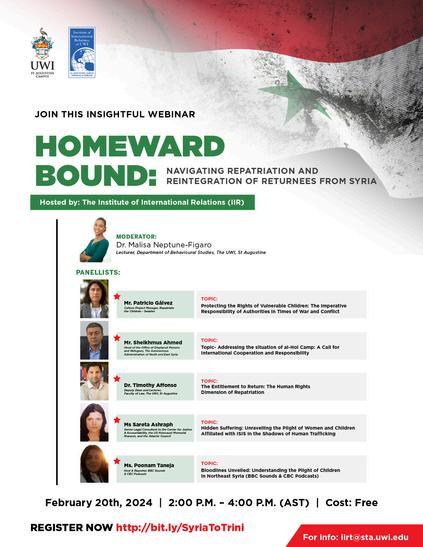
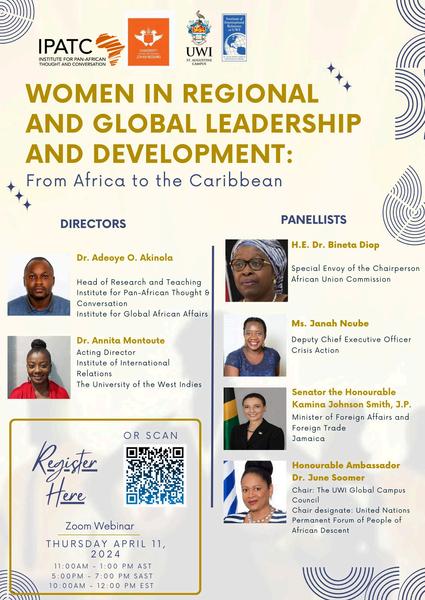
Women in regional and global leadership and development: from Africa to the Caribbean
Partners- IIR, Institute for Pan-African Thought & Conversation (IPATC) at the University of Johannesburg
April 11, 2024
Directors and Chairs:
❖ Dr Adeoye O Akinola - Head of Research and Teaching, Institute for Pan-African Though and Conversation, Institute for Global African Affairs.
❖ Dr Annita Montoute - Acting Director, Institute of International Relations, The University of the West Indies
Speakers:
❖ H E Dr Bineta Diop - Special Envoy of the Chairperson, African Union Commission
❖ Ms Janah Ncube - Deputy Chief Executive Officer, Crisis Action
❖ Senator the Honourable Kamina Johnson Smith, J P - Minister of Foreign Affairs and Foreign Trade, Jamaica.
❖ Honourable Ambassador Dr June Soomer - Chair, The UWI Global Campus Council, and Chair designate, United Nations Permanent Forum of People of African Descent
The webinar focused on women’s contributions to issues of regional and international concern in the Caribbean and Africa
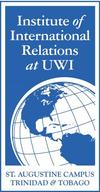
THE NORMAN GIRVAN LIBRARY
HIGHLIGHTS
The Norman Girvan Library remained an active and vibrant part of the Institute of International Relations, championing the Insititute’s participation in The UWI St Augustine Campus’s Research Festival in November 2023, and decorating the allocated space for IR during The UWI Open Days in April 2024
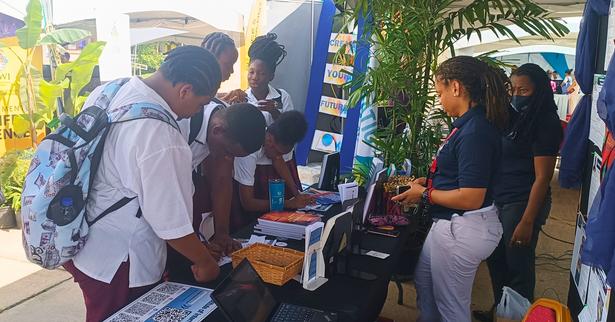
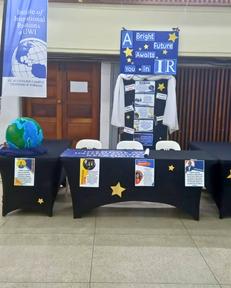
The library had its own Open Day of its own in October 2023 which saw student participation in games and various fun activities

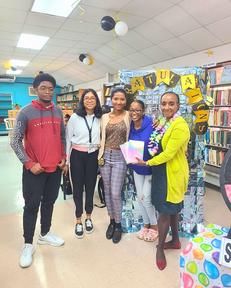
The NGL brought importance to bear on UN International Days, “Rock Your Socks” for World Down Syndrome Day and a display for International Women’s Day, among others
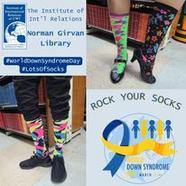


The library offered several Library Labs and information literacy sessions in support of students’ research needs We say a big thank you to all our facilitators and students who participated.
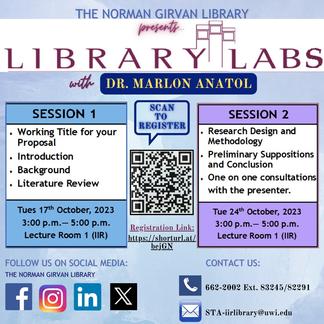
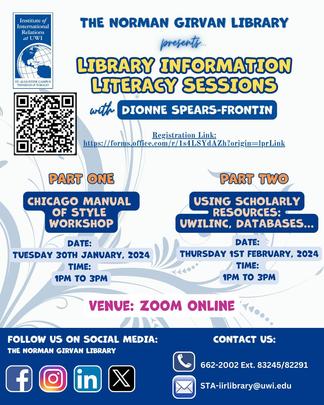
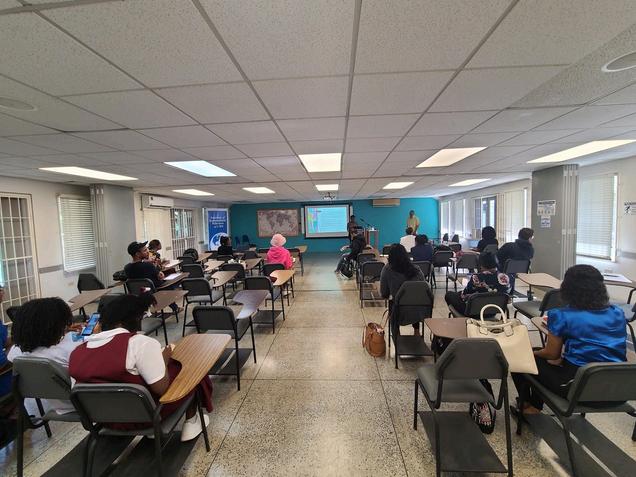
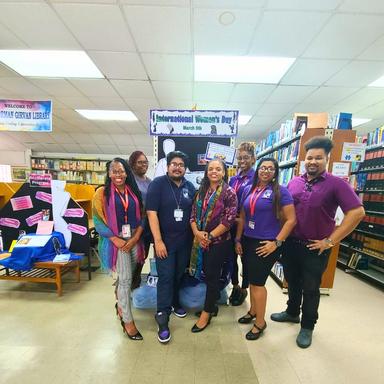
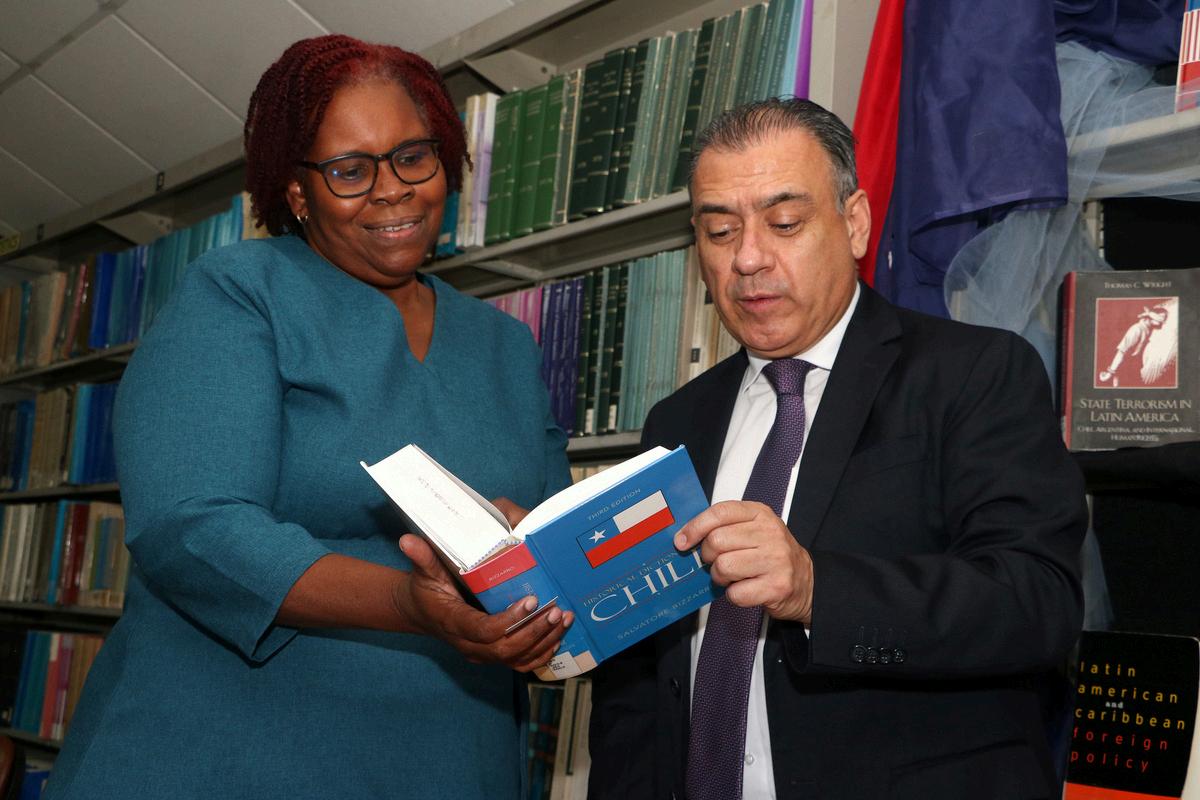
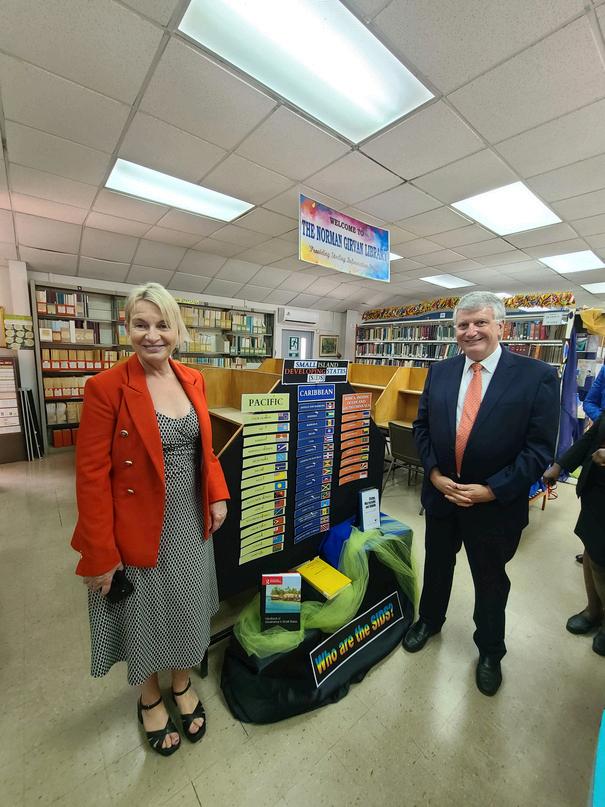
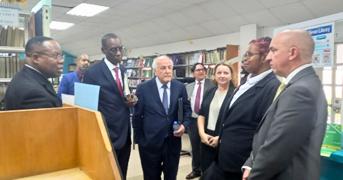
The library welcomed several important persons such as the Chilean Ambassador, H E Hernán Núñez Montenegro, Australian High Commissioner, H E Sonya Koppe, French Ambassador, H E Didier Chabert, and a United Nations delegation. It was a rewarding academic year and we look forward to 2024/2025.
Student Enhancement Highlights
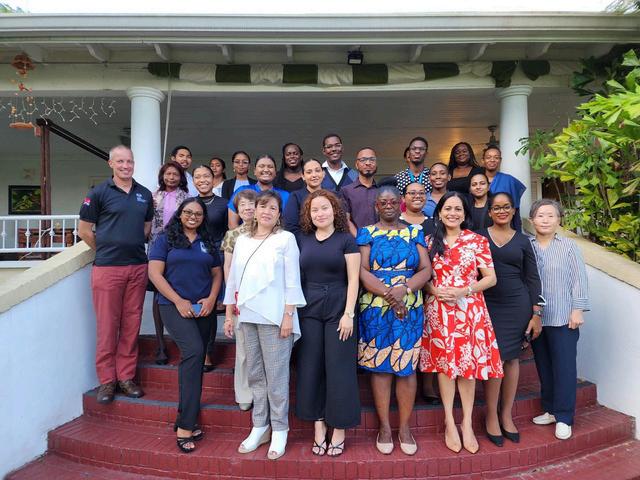
Conversations & Tea with Diplomatic Spouses at the British High Commissioner’s Residence
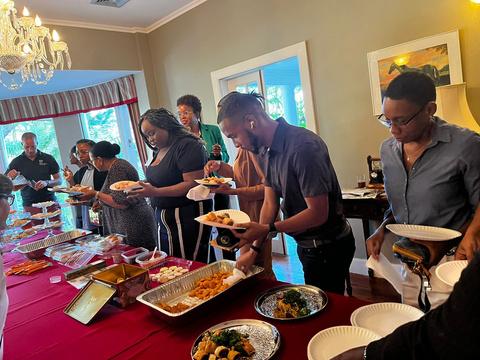
October 4th, 26th 2023 & November 22nd, 2023
March 6th, 2024
The British High Commissioner's residence hosted "Conversations and Tea," featuring former and current diplomatic spouses, Mrs. Saara Browne, Monitoring and Evaluation Practitioner and Humanitarian, and Mr. Phillip Saltonstall, Residence & Events Manager, UK High Commission, Port of Spain. Students enjoyed engaging discussions, finger foods, and tea. In attendance were other spouses of diplomats in Trinidad and Tobago.
Study Tours to the ECLAC Sub-Regional Headquarters for the Caribbean, UN House and the Caribbean Court of Justice
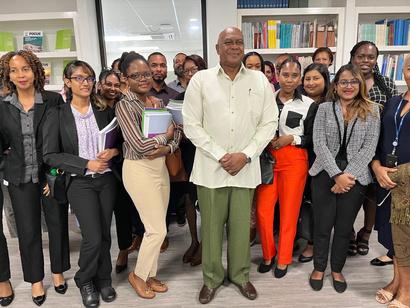
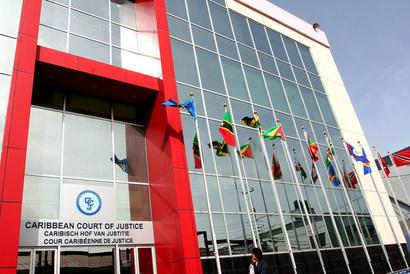
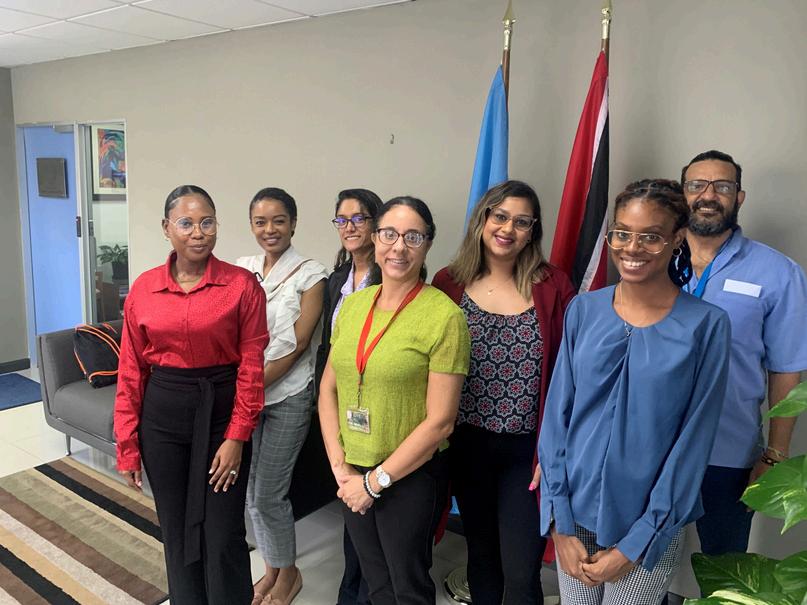
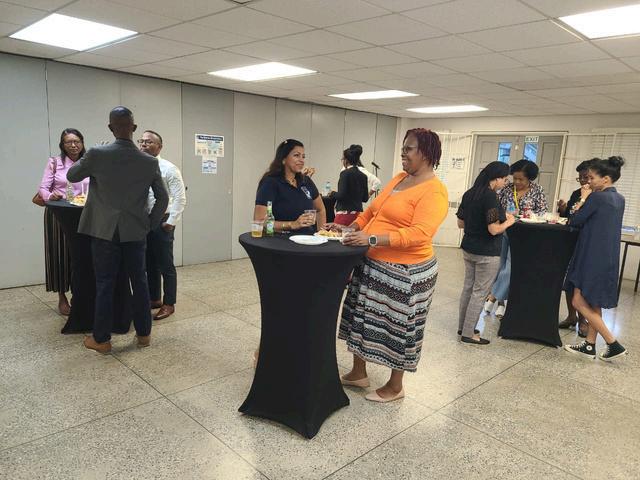
Student - Alumni Social Mixer
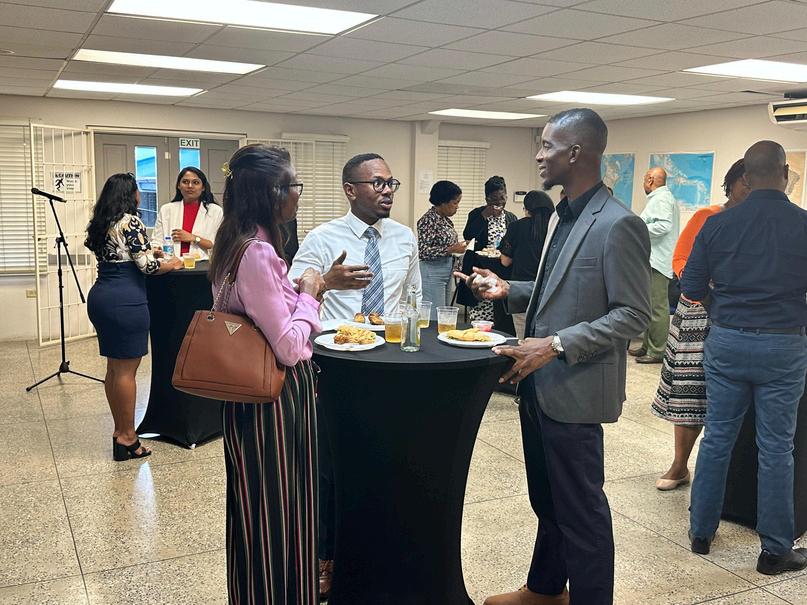

January 19th, 2024
Students, alumni, and faculty connected over delicious foods and drinks at this exciting networking event held at the IIR
Students toured the ECLAC Sub-regional Headquarters for the Caribbean, and various UN agencies at UN House, as well as the Caribbean Court of Justice, gaining valuable insights into the organisations' operations and contributions to regional development and international cooperation and law
Library staff at the Social Mixer
Students and alumni mingle and enjoy refreshments
Professor Lancelot Cowie accompanies students to the ECLAC Sub-Regional Headquarters
CCJ Building
Dr Jacqueline Laguardia-Martinez accompanies students to UN House
Students and the Acting Director, Dr Annita Montoute with diplomatic spouses: Mr Phillip Saltonstall, and Mrs Saara Browne
Students take refreshements at the British High Commissioner’s residence
Working in The Field of International Relations
By Dr Kai-Ann Skeete, IIR Alumna

September 2024 marks 21 years since I was introduced and fell in love with the interdisciplinary subject of International Relations As I mature within the discipline, I now have the pleasure of assessing, analysing, troubleshooting and predicting the outcomes of several ongoing crises Although we in the Caribbean live a relatively tranquil reality, we are only a plane ride away from street riots, war bombs and the reality of climate refugees in 2024 So what’s next for us?
As we are onto the 2nd quarter of 2024, it is worth reflecting on some key issues.
We are confronted with our region re-opening ourselves to the global community and hosting the upcoming ICC Men’s T20 World Cup in June The question is, will we host the global cricketing community while maintaining our nationalistic borders or will we merge into a Single Domestic Space? Will we examine the benefits of cross-border trade as a region and encourage increased trade with Belize, Guyana, Guatemala, Brazil and Dominican Republic? Will we actually seek to explore, promote and utilise the manufactured food products from within our region rather than increase our current trade with our North American neighbours?
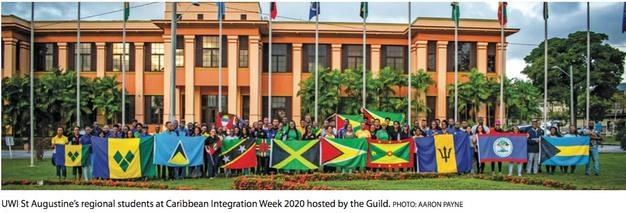
For me, the future lies in the ability of the young International Relations graduates to lead the charge from the front The charge of merging climate change and trade, biosecurity and diplomacy, understanding the rights of workers in the gig economy, the sustainable use of water and foreign policy amidst a mirage of other unrelated but interconnected disciplines within our region Our future must now re-imagine the reality and statecraft tools of no longer small islands but big ocean states, the future role of the blue economy and the servification of our industries to prioritise the creatives and the artisans as we manoeuvre the challenges of skilled labour deficits
Our task if not only to innovate but also to guide and shepherd the future generation for what lies ahead We should craft a future where the Global South relies on the Caribbean not only as a zone of peace but one of geopolitical power We must call for the future we want to live in and create your community accordingly
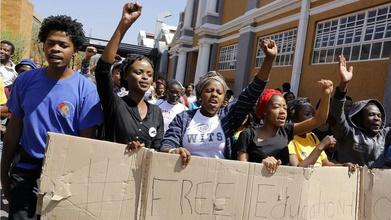
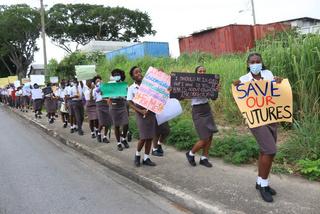
As a former student of Professor Norman Girvan, I find it fitting to end with his words from 2012,
“...you and your generation stand on the cusp of your own life’s journey as the region faces several challenges, as I and my generation did over a decade ago. It is like the handing over of the baton. But I want to remind you all that the runner who passes the baton, doesn’t stop running; the runner keeps on for a while longer and cheers on his or her successors.”
UWI St Augustine regional students at Caribbean Integration Week 2020 Photo: Aaron Payne
Students from some sixth form schools across Barbados staged a protest making their presence felt just a short distance from CXC Headquarters, Pine Plantation Road, Barbados Photo: LOOP Photography
South African student protest the state of national education during March, 2016 Photo: EPA
Student & Alumni Experiences
A Milestone in
My Academic Journey:
Publishing a Study on Health Security Responsiveness to COVID-19 and Zika Outbreaks in T&T
By Sherian Bachan, IIR Alumna, MSc Global Studies
Emerging from the shadow of the pandemic, our world is slowly rediscovering the rhythm of the “old normal”. Yet, for many months, adapting to the “new normal” was essential In August 2020, I embarked on a research journey that led to the publication of my study in the Journal of Developing Societies, marking a significant milestone in my academic and professional career, and personal life
Under the guidance of Dr Michał Pawiński, I delved into the topic of health security With the world adapting to remote work, mask mandates, and stockpiling toiletries, this topic was timely and pertinent My study, focusing on the health security responses to the COVID-19 and Zika outbreaks in Trinidad and Tobago, filled a crucial gap in Caribbean health security discussions.
The journey to publication was challenging yet rewarding. As a young researcher, securing sufficient interview participants was daunting However, interested participants were eager to assist me with my study, which gave me hope. When the article was published in December 2023, it marked a moment of immense pride and fulfilment Being recognised as a published academic author felt surreal and profoundly gratifying My research explored the dual nature of health security responses by Trinidad and Tobago’s Ministry of Health (MoH) and the Caribbean Public Health Agency (CARPHA)
to the COVID-19 and Zika outbreaks These contrasting outbreaks provided a unique perspective on the effectiveness of surveillance systems, response strategies, and preventative measures in safeguarding public health
The initial response to COVID-19 pointed to border closures and mandatory mask-wearing Interviewees highlighted these measures as crucial in mitigating the early spread of the virus However, some challenges of unauthorised border crossings and an overwhelmed healthcare system revealed systemic weaknesses, emphasising the need for adaptive strategies In contrast, the response to the Zika outbreak showcased a robust capacity for early detection and targeted interventions, especially for vulnerable populations like pregnant women.
This study is particularly meaningful because it addresses a research gap in health security discussions within the Caribbean region My hope is that this exploratory study will pave the way for future crossnational comparisons and more comprehensive research
As an IIR alumna, I am profoundly proud to have conducted a study deemed worthy of publication To aspiring researchers, my journey underscores an important lesson: your potential exceeds any perceived limitations The challenges of the research process are stepping stones to greater achievements. My experience of being published is a testament to the value of perseverance, passion, and the impact that diligent research can have on broader issues. Find the study here
Gaining Insight and Skills: My Journey as a Consular Assistant at the Mexican Embassy
By
As a proud product of the Institute of International Relations, I re-entered the world of work in August 2021 to serve as a Consular Assistant at the Embassy of Mexico in Port of Spain This job opportunity provided invaluable insight into the operations of a Consular Section and a diplomatic mission as a whole I enjoyed preparing cases and presenting them for the Consul's review by taking into account Mexican laws and regulations. Occasionally, I was privy to consular interviews and asked subsequently to give an opinion or to identify gaps in the information that may have been purported by an individual.

I am of the firm belief that those experiences allowed me to harness more critical and analytical skills Working in that diplomatic mission also pushed me to sharpen my language skills, of course with Spanish being the language of instruction
By Avery Durham, IIR Alumna, MSc Global Studies

Funnily enough, I also communicated in French with some of the diplomats who were learning the language.
In the wider working environment of the Embassy, I collaborated with colleagues for cultural events or to campaign for social causes My time at the Embassy of Mexico spurred growth at a professional and personal level.
Avery Durham, IIR Alumna, MSc Global Studies

Editor’s Note:
As we conclude this special revived issue of IIR Today, we extend our heartfelt gratitude to each of our readers Your unwavering support and enthusiasm have fuelled our efforts to bring back this cherished publication We hope you found the content informative, engaging, and a refreshing revisit to the essence of IIR Today
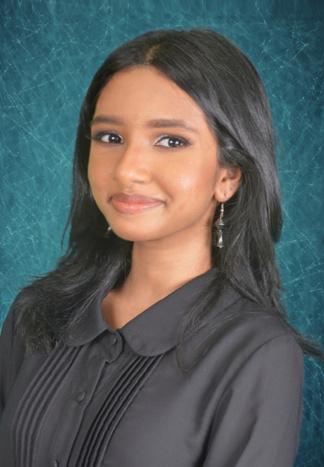
Stay tuned for more insightful articles, updates, and features in the future issues. Thank you for being an integral part of the IIR Today community
Warm regards,
Sarah
Hosein
Managing Editor

Editorial Committee:
Ms. Sarah Hosein Managing Editor Research Assistant, IIR
Mrs. Dionne Spears-Frontin Advisor
Librarian (Ag.), Norman Girvan Library
Mr. Jade-Mark Sonilal Editorial Assistant Research Assistant, IIR
